34th Avenue Slow Street
34th Avenue Slow Street
2023 - $15,000 General Operating Support
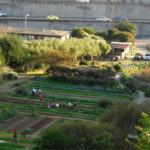
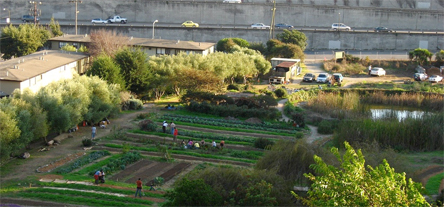
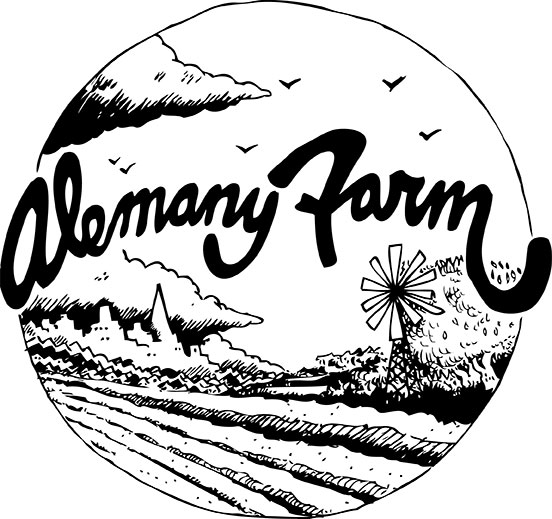
Friends of Alemany Farm
2007 - $2,500 General Support
Friends of Alemany Farm is a volunteer group that manages the horticulture, volunteer, and educational programs at Alemany Farm, a 4.5 acre organic farm ecosystem in southeast San Francisco.
Alemany Farm grows food and educates local residents about how they can become their own food producers and strive to increase ecological knowledge and habitat value, and to sow the seeds for economic and environmental justice. Strategies to further their cause include fostering environmental education by introducing children and adults to the idea that local food production can be part of a healthy ecosystem, inspiring visitors to start their own gardens at home, and promoting ecological-economic development by using urban agriculture as a way to develop green job skills.

California Academy of Sciences

California Academy of Sciences
2018 - $10,000 Biodiversity Toolkit for Cities
2016 - $10,000 Citizen Science Program
2015 - $10,000 Citizen Science Program
2007 - $5,000 Capital Campaign, Green Roof
The California Academy of Sciences is a multifaceted scientific institution committed to leading-edge research, to educational outreach, and to finding new and innovative ways to engage and inspire the public. The Academy's mission - to explore, explain and protect the natural world - extends to all corners of the institution; from a research expedition in the highlands of Papua New Guinea, to a teacher training program in a California classroom, to an interactive game on the museum exhibit floor.
One of the highlights of the Academy of Science’s Museum is the living roof. The masterstroke of rooftop’s design lies in making the park's environment such a visible part of the building itself. The rooftop's seven undulating green hillocks pay homage to the iconic topography of San Francisco and blurs the boundary between building and parkland.
Citizen Science Program
Following the San Francisco Urban Biodiversity Summits in 2013 and 2014, the California Academy of Sciences has been leading charge in convening biodiversity leaders in the Bay Area and through their Citizen Science Program. In order to address the lack of knowledge on the biodiversity of California, the Academy aims to crowd-source data through observations of plants and animals by citizen scientists, encouraging people of all backgrounds to work together to build the data set of biodiversity required to make local and global conservation decisions.
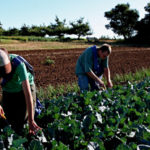
Center For Agroecology, UC Santa Cruz
![]()
Center For Agroecology, UC Santa Cruz
2009 - $10,000 Publication Feasibility Study
2007 - $10,000 General Support
The mission of the Center for Agroecology & Sustainable Food Systems is to research, develop, and advance sustainable food and agricultural systems that are environmentally sound, economically viable, socially responsible, non-exploitative, and that serve as a foundation for future generations. The Center is within the Division of Social Sciences at UC Santa Cruz, and undertakes projects in many disciplines working with faculty, staff, and students from throughout the university. Beyond the campus, the center collaborates with non-governmental organizations, growers, community members, visiting students and researchers, as well as state and federal agencies. The Center's work includes both theoretical and applied research; academic education and practical training; and community outreach and public service for audiences ranging from local school children to international agencies.
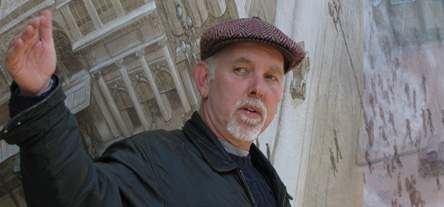

Cities Connecting Children & Nature: San Francisco

Cities Connecting Children & Nature: San Francisco
2016 - $10,000 General Support
San Francisco is one of seven cities competitively invited to join the national Cities Connecting Children & Nature initiative, a partnership of the National League of Cities and the Children & Nature Network. The Coalition has been invited to participate in a seven-city cohort over the next eight months to develop a robust and comprehensive City Implementation Plan for connecting the city's children, youth and families with nature experiences in the city. By harnessing collective energies toward a shared vision and concrete results, San Francisco will create a model for better coordination, gap identification, and long-term accessibility seeking to build meaningful and lifelong nature connections for all youth and families.
Children Connecting Children & Nature: San Francisco envisions a city whose children have daily experiences in local nature, who feel a sense of belonging to the natural world, who feel at home in nature, whose school learning is meaningfully contextualized in the city’s outdoors, and who develop lifelong relationships to nature for health, recreation, and conservation benefits. The program strives to help San Francisco’s current generation of children to become adults who share these experiences with their own kids/families and pass on the value of nature connection for generations to come.
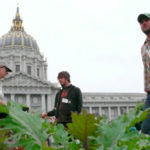
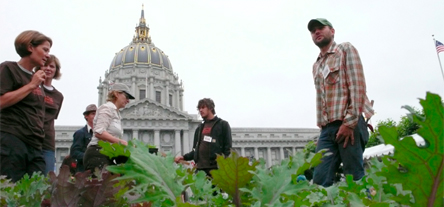
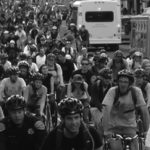

Critical Mass
2012 - $5,000 20th Aniversary Celebration
Critical Mass got started in September 1992 in San Francisco as a way to bring cyclists together in a festive re-claiming of public space. Beginning rather under a less catchy name—the Commute Clot—the ride drew an initial crowd of 60 cyclists, and these numbers doubled for several months following.
Critical Mass has continued and grown in San Francisco, drawing hundreds from month to month, with typical rides around 1,500 to 2,000 (an all-time high on the 2002 10th anniversary is rumored to have been 10,000 cyclists!), but it has spread to over 300 other cities as well. For example, two dozen Italian cities have vibrant Critical Masses now, with Rome leading the way. In 2012, bicyclists in Brazil staged Critical Masses in over 20 cities to dramatize a surge of cyclist deaths in that country's car-centric streets. With independent rides springing up all over the place, Critical Mass has begun to take on the character of a large scale, decentralized grassroots movement!
September 2012 celebrates 20 years since the first Critical Mass took place in San Francisco. A week long series of events and rides are planned. The Seed Fund grant will support documentation of the events including a publication and original poster and sticker art.
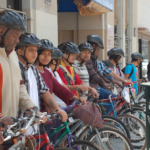

Cycles of Change
2021- $10,000 General Support
Mission:
Cycles of Change works to improve the health and sustainability of East Oakland neighborhoods by increasing the use of bicycles as transportation. Cycles broadens access to biking in low-income communities of color through education programs and low cost or free resources, and connects youth with the extraordinary living ecosystems of their local area to build a diverse community of visionary young leaders.
History:
Cycles of Change is deeply rooted in East Oakland. Starting in the basement of Roosevelt Middle School in 1998, a small-but-mighty staff of 3 led young riders on after-school bike adventures and offered them opportunities to earn bikes. These programs became wildly popular and developed a huge following. Since then, the organization has expanded to offer in-school bicycle safety trainings and adult commuter programs for low income Oakland residents, as well as in 2009 opening The Bikery, a community bike shop making biking more accessible for all kinds of riders.
Through these endeavors, Cycles of Change has built deep, multi-generational relationships in East Oakland and the East Bay with schools, community-based organizations, and families throughout Alameda County. Cycles lifts up East Oakland youth and families with a multi-pronged approach including after-school Bike Clubs, in-school bike safety classes, high school mentorships, and youth job training and employment.
Vision:
Climate Justice: Cycles of Change envisions a world in which everyone has access to clean air, water, and nature. This vision is currently far from reality, as East Oakland residents are impacted every day by environmental racism baked into Oakland’s geography. Cycles of Change works to increase bike ridership and minimize reliance on cars, empowering local residents and growing access to the natural world through pedal-powered adventures to public greenspaces and ecosystems in East Oakland.
Affordable Mobility: Cycles of Change believes that every resident of the San Antonio district and East Oakland should have access to bikes, because flexible, affordable mobility boosts residents’ quality of life and grows their agency over the spaces in which they live. Through The Bikery, a community bike shop located at 23rd Ave and 12th Street, Cycles of Change seeks to make this dream a reality. For eleven years and counting, The Bikery has been an indispensable resource for community members, providing sliding-scale and pro-bono bikes and repairs to over 1,000 customers a year, facilitating high school internships and earn-a-bike programs, and serving as a hub of community for local youth to socialize and learn bike mechanics.
Values:
Equity: Cycles of Change works with an equity lens, believing strongly in a holistic framework of Transportation Justice at the urgent intersection of movements for racial, gender, economic, environmental, and disability justice. Currently, the organization is fully comprised of educators and advocates of color, committed to bold solutions in communities most impacted by climate change and environmental racism.
Collective Governance: Cycles of Change believes in shared knowledge and uses a democratic decision-making process and horizontal organizational structure that makes space for many voices. Cycles of Change commits to restorative justice and harm-reduction approaches to conflict management that do not involve law enforcement or the carceral state.
Programs:
Community Voices:
“It feels amazing to be riding in the city I live in. It feels good because you put more force into it [compared to a car] and you get to exercise more.” --Sarayha (2021 MetWest Huerta Bike Club)
“Learning to ride a bike feels really great because I can ride whenever I want now. I get to see places I’ve never been before, and I really like feeling the wind while I’m riding.” --Quennie (2021 MetWest Huggins Bike Club)
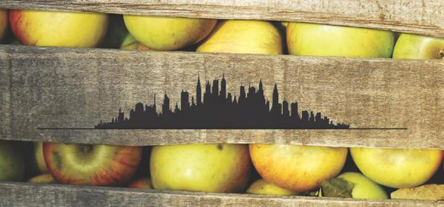 Darrin Nordahl
2010 Fellow
Darrin Nordahl is speaker and writer on issues of food and city design. He has taught in the City and Regional Planning Department at UC Berkeley and in the Landscape Architecture program at UC Berkeley Extension.Nordhal currently resides in Davenport, Iowa, a once Agricultural Rust Belt city now poised to redefine urbanism in the Midwest. His book Public Produce (Island Press, 2009) showcases how innovative urban food concepts can add vitality to city spaces. He believes that good city design can change behavior for the betterment of the individual and society.Other books by Nordahl include: My Kind of Transit: Rethinking Public Transportation (Island Press, 2009) and Making Transit Fun!: How to Entice Motorists from their Cars (Island Press, 2012).
darrinnordahl.com
Darrin Nordahl
2010 Fellow
Darrin Nordahl is speaker and writer on issues of food and city design. He has taught in the City and Regional Planning Department at UC Berkeley and in the Landscape Architecture program at UC Berkeley Extension.Nordhal currently resides in Davenport, Iowa, a once Agricultural Rust Belt city now poised to redefine urbanism in the Midwest. His book Public Produce (Island Press, 2009) showcases how innovative urban food concepts can add vitality to city spaces. He believes that good city design can change behavior for the betterment of the individual and society.Other books by Nordahl include: My Kind of Transit: Rethinking Public Transportation (Island Press, 2009) and Making Transit Fun!: How to Entice Motorists from their Cars (Island Press, 2012).
darrinnordahl.com
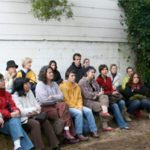
Education Outside (formerly San Francisco Green Schoolyard Alliance)

Education Outside (formerly San Francisco Green Schoolyard Alliance)
2014 - $8,000 Corps for Education Outside Program
2011 - $5,000 Conference Support
2009 - $12,000 Matching Grant for Gardening Educators
2008 - $5,000 Conference Support
2007 - $10,000 General Support
Corps for Education Outside program
Corps for Education Outside program is an innovative new program which is transforming San Francisco’s public schools into centers of hands-on environmental science learning and biodiversity. Corps members transform school gardens into lush, living laboratories, teaching engaging, hands-on lessons that encompass not only science but also sustainability, healthy living, gardening, and cooking. The curriculum used focuses primarily on science as well as English language arts and math.
San Francisco Green Schoolyard Alliance
The San Francisco Green Schoolyard Alliance (SFGSA) is a coalition of Bay Area civic organizations whose work supports schoolyard transformations from ordinary asphalt yards into ecologically rich green spaces for learning and play. SFGSA works to ensure that these emerging vibrant landscapes reflect a school’s local ecology and meet the school’s curricular goals. SFGSA members offer a wide variety of resources that can help school communities create and sustain green schoolyards. They advocate for school yard greening at district, city, and state levels; provide professional development for teachers and parents; secure horticultural supplies and other resources for schools; and maintain a website and hotline for advice and troubleshooting needs.
Education Outside (formerly San Francisco Green Schoolyard Alliance)
2014 - $8,000 Corps for Education Outside Program
2011 - $5,000 Conference Support
2009 - $12,000 Matching Grant for Gardening Educators
2008 - $5,000 Conference Support
2007 - $10,000 General Support
Corps for Education Outside program
Corps for Education Outside program is an innovative new program which is transforming San Francisco’s public schools into centers of hands-on environmental science learning and biodiversity. Corps members transform school gardens into lush, living laboratories, teaching engaging, hands-on lessons that encompass not only science but also sustainability, healthy living, gardening, and cooking. The curriculum used focuses primarily on science as well as English language arts and math.
San Francisco Green Schoolyard Alliance
The San Francisco Green Schoolyard Alliance (SFGSA) is a coalition of Bay Area civic organizations whose work supports schoolyard transformations from ordinary asphalt yards into ecologically rich green spaces for learning and play. SFGSA works to ensure that these emerging vibrant landscapes reflect a school’s local ecology and meet the school’s curricular goals. SFGSA members offer a wide variety of resources that can help school communities create and sustain green schoolyards. They advocate for school yard greening at district, city, and state levels; provide professional development for teachers and parents; secure horticultural supplies and other resources for schools; and maintain a website and hotline for advice and troubleshooting needs.
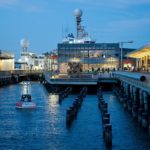

Exploratorium
2022 - $15,000 Urban Fellows Program
2021 - $15,000 Urban Fellows Program
2019 - $10,000 Coastal Resiliency Collaboration
2019 - $10,000 General Support
2018 - $10,000 Urban Fellowship
2017 - $10,000 Urban Fellowship
2017 - $10,000 Habitat: Bay As It Is Symposium
2016 - $5,000 Habitat: Bay As It Is Symposium
2016 - $10,000 Urban Fellowship
2015 - $10,000 Urban Fellowship
2015 - $10,000 Center for Art and Inquiry
2014 - $10,000 Urban Fellowship
2013 - $10,000 Jane Wolf, Bay Lexicon
2013 - $1,000 Living Innovation Zone
2011 - $10,000 Capital Campaign
Since 1969, the Exploratorium’s museum in San Francisco has been home to a renowned collection of 650+ exhibits that draw together science, art, and human perception, and that have changed the way science is taught. Our award-winning programs inspire visitors, empower teachers through our cutting-edge teacher development program, and influence a global movement where 80% of science centers across the globe contain Exploratorium exhibits. The exhibits on the floor are designed to enable experimentation with physical phenomena while simultaneously strengthening thinking and inquiry skills. This is true not only for our audiences of over 850,000 people a year in San Francisco, but for an estimated 250 million people who experience our exhibits at science centers around the world. As founder Frank Oppenheimer saw it: “A lot of people have given up trying to comprehend things, and when they give up with the physical world they give up with the social and political world as well. If we stop trying to understand things, I think we’re all sunk.” The Exploratorium continues to build on his foundational belief that citizens who are curious and empowered to learn about the world are more likely to take action and tackle problems in their communities.
The Exploratorium’s location on Piers 15 and 17, and in particular our investment in the Fisher Bay Observatory, has provided an unprecedented opportunity to engage the public with a wealth of data about the area’s natural and built environments and dynamic access to the researchers collecting it. Since our relocation from the Palace of Fine Arts in 2013, we have been continually evolving exhibits, programs, and partnerships to engage diverse audiences in understanding the complex ecologies that emerge through the interaction between social, cultural, and natural forces and systems. The facility serves as a new model for a combined research and learning space—an open laboratory for researchers, policy makers, and the public. We are educators who have learned that as we face global climate crises, our strategy must be expansive including the contributions of scientists, educators, artists, designers, historians and cultural workers, as well as practitioners in the realms of policy and advocacy.
Due to the Covid-19 pandemic, the Exploratorium closed its doors on March 12, 2020. Our museum has always been a playground of discovery and hands-on learning, but as we remain closed, our educators, exhibit developers, scientists and other staff have gotten creative in sparking curiosity online. From helping teachers make science come alive in virtual classrooms, to engaging families all over the globe in tinkering projects, to illuminating timely science through online events like Covid Conversations and After Dark, the Exploratorium’s online content highlights what the Exploratorium does best: creating learning experiences that are engaging, interactive, inspiring, and trustworthy.
The digital programming and resources reach audiences from young kids to adults, and present a full range of topics from nearly all Exploratorium departments, from biology, to the environment, to Cinema Arts. In all, our digital resources are being used more than ever: traffic to our website, which serves 2M people annually, is up by nearly 300%. The Exploratorium is proud to continue sparking curiosity wherever people are, whether the kitchen table laboratory, the virtual classroom, the outdoors, or—eventually—back at Pier 15
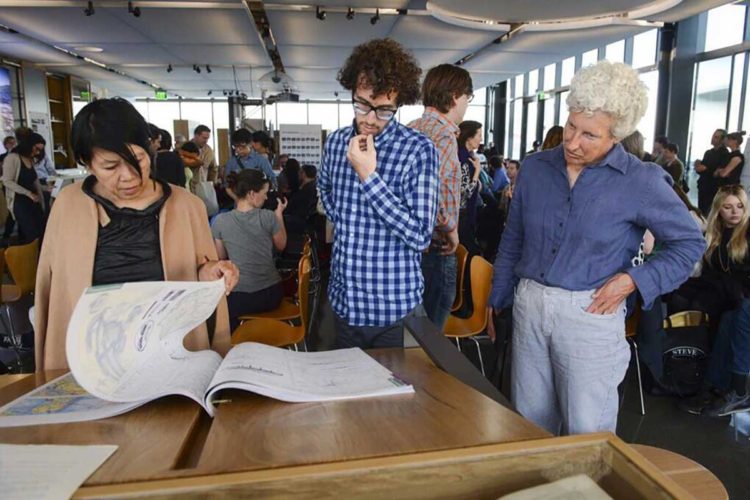
Urban Fellowship
The Exploratorium's new Urban Fellow program will address issues related to climate change and rising sea levels. This program situates an artist or urban practitioner in a residency within the Bay Observatory to explore the human relationship to the urban environment. Fellows could explore concrete forms: such as architecture and infrastructure: as well as human forms: such as approaches to planning or individual practices within the city. This investigation is both important and timely as urban areas globally explore the issue of climate change and coastal resiliency.
Jane Wolf, Bay Lexicon
Bay Lexicon is an illustrated field guide to San Francisco’s shoreline. Using methods and tools from landscape scholarship, design, and science education, Bay Lexicon aims to encourage observation and enquiry about the natural world and its relation to culture.
Living Innovation Zone
The LIZ project is a place making project, which encourages people to engage with their environment and each other in new and surprising ways. The Exploratorium relies on this kind of open-ended inquiry as a means of engaging people and encouraging them to learn about themselves and the world around them.
Capital Campaign
It is the Exploratorium’s goal to be the world’s first net zero energy, carbon neutral museum. Their LEED Platinum certification sets the stage as they continue to work on their sustainability goals. The new location on San Francisco’s waterfront showcases a premiere “green” building, operating with maximum energy efficiency and preservation of the atmosphere.
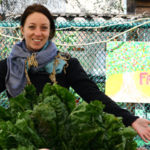
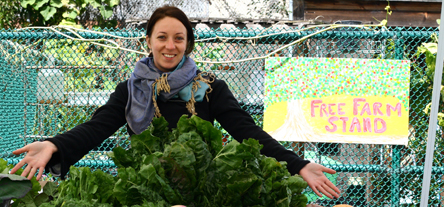

Free Farm Stand
2010 - $3,000 General Support
The Free Farm Stand, an all-volunteer run project facilitates sharing the wealth of urban farms and gardens. This includes helping make locally grown, fresh and nutritious organic produce accessible to all (especially those families and individuals on low-incomes and tight budgets), empowering people who have the space to grow their own food and become more self-reliant and promoting good nutrition and health.Located in the Mission district, the Free Farm Stand gathers surplus food from neighborhood gardens, various farmer’s markets, community gardens, public and private fruit trees and provides the space where this bounty can be shared.The stand also acts as a gathering place to encourage community growth and involvement. In 2010, the Free Farm Stand, along with a small constellation of non-profit organizations in San Francisco, founded The Free Farm. Located on a 1/3-acre parcel loaned by St. Paulus Lutheran Church, The Free Farm has grown and given away over 1,000 pounds of fresh organic produce, convened gardening and urban homesteading workshops, and hosted community, school, and religious groups.
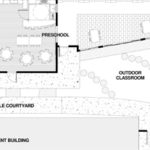
Friends of Potrero Nursery School
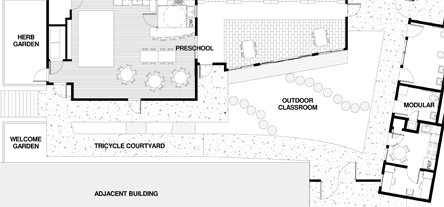
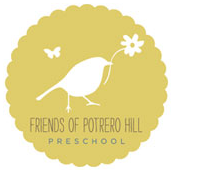
Friends of Potrero Nursery School
2013 - $8,000 Urban Garden
2010 - $5,000 Capital Campaign
The Friends of Potrero Hill Nursery School (FOPHNS) is a much-loved preschool that has served San Francisco families for 12 years. In that time over 200 children have begun school in its caring and delightful atmosphere with an emphasis and a reverance for nature. Creating environmentalists from the start, children are engaged in a seasonal cycle of activities in their small garden and throughout the neighborhood, drawing the children’s attention to the natural world around them.Capital Campaign
The capital campaign raised funds to build a permanent home for FOPHNS and a new Family Center on the grounds of the oldest public schoolhouse in San Francisco. The San Francisco Unified School District has leased to FOPHNS two outbuildings for a token amount, with the understanding that Friends will reuse them to better the community. This opportunity will not only provide long-term security for the school, but will also transform the I.M. Scott site and its two abandoned buildings into vibrant community assets: a Preschool and a Family Center. This project models a new form of green community center - a place where the nurturing of children is understood to be at the heart of creating a healthy society.
Urban Garden
To complement the completed main building, this second phase of the project creates a garden and play space that will surround a small family center. The garden is a fascinating place for young children, full of the drama of birds and bugs and worms as well as the processes of growth and decay. Caring for plants allows children to become closely acquainted with these and other living organisms. This sparks curiosity and empowers children to learn more about their natural surroundings.
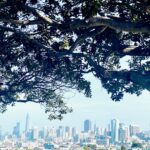
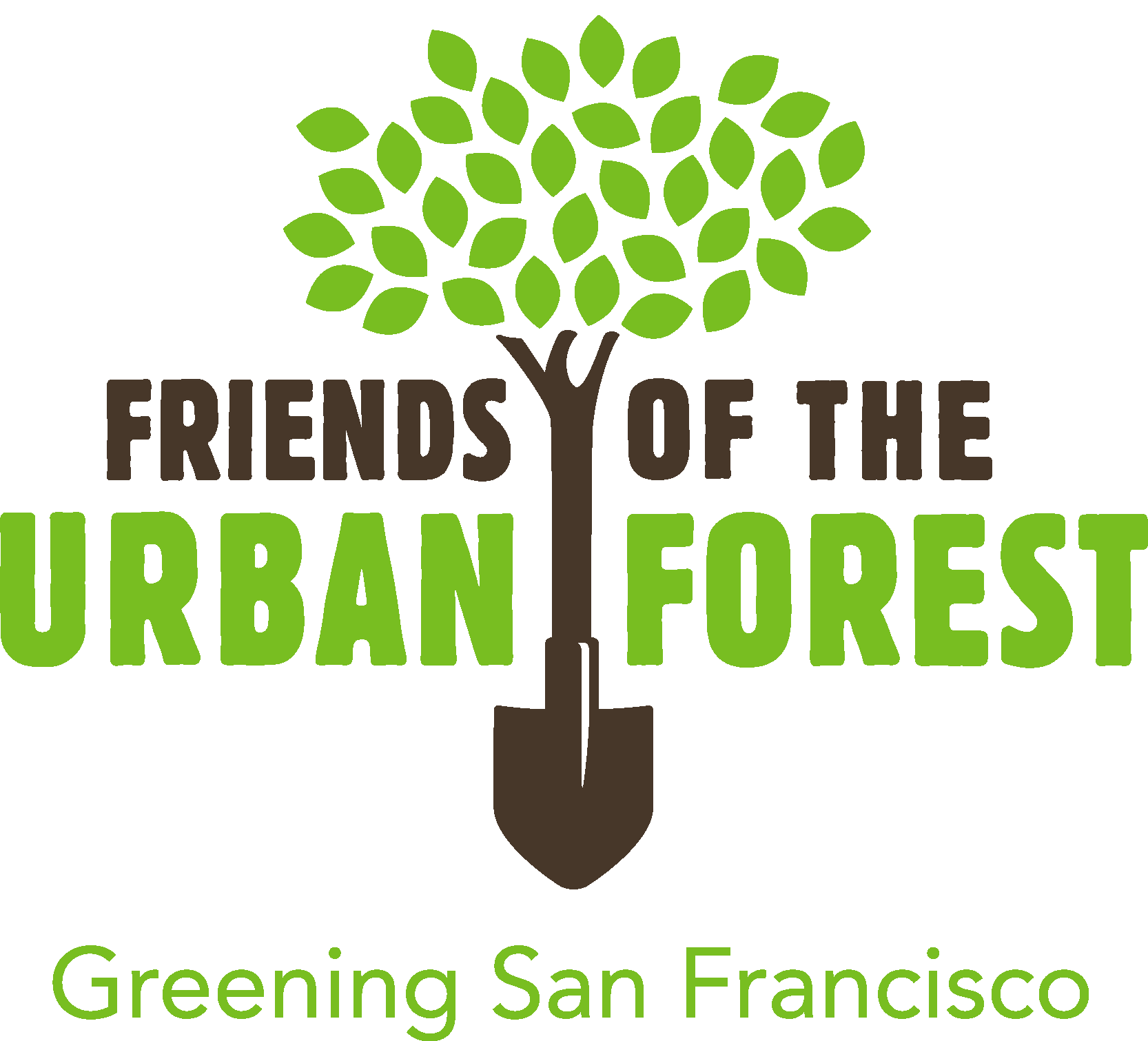
Friends of the Urban Forest
2023 - $5,000 General Support
2019 - $15,000 General Support
2007 - $10,000 General Support
Friends of the Urban Forest (FUF) promotes a larger, healthier urban forest as part of San Francisco’s green infrastructure through community planting, tree care, education, and advocacy. Each year, FUF helps communities plant nearly 1,000 trees. Neighbors organize the plantings, while FUF obtains permits, removes sidewalk concrete, supplies tools and materials and selects, purchases and delivers the trees. On planting day, FUF volunteers work side-by-side with residents. After the work is done, everyone celebrates over a community lunch.In 1995, FUF formally instituted Tree Care to improve tree health and to increase survival rates - certified arborists, assisted by volunteers and trainees, prune and re-stake existing street trees. Tree Care aims to provide essential maintenance services and to educate neighbors, through mailings and hands-on assistance, on how to care for their trees. FUF is committed to increasing its resources for Tree Care, which is essential to maintain and enhance the community’s investment in San Francisco’s urban forest.
 Fritz Haeg
2010 Fellow
Artist Fritz Haeg's work has included edible gardens, public dances, educational environments, animal archtecture, domestic gatherings, urban parades, temporary encampments, documentary videos, publications, exhibitions, websites and buildings. His work includes the urban ecology initiatives of Edible Estates and Animal Estates; the domestic social activities of Sundown Salon and Sundown Schoolhouse; and the designs and scores of Fritz Haeg Studio.
Edible Estates is an ongoing initiative to create a series of regional prototype gardens that replace domestic front lawns and other unused spaces in front of homes with places for families to grow their own food. The eight gardens have been established in cities across the United States and England. Adventurous residents in each town have offered their front lawns as working prototypes for their regions. Each of these highly productive gardens is very different, designed to respond to the unique characteristics of the site, the needs and desires of the owner, the community and its history, and, especially, the local climate and geography.
With the modest gesture of reconsidering the use of our small, individual, private front yards, the Edible Estates project invites us to reconsider our relationships with our neighbors, the sources of our food, and our connections to the natural environment immediately outside our front doors.
fritzhaeg.com
Fritz Haeg
2010 Fellow
Artist Fritz Haeg's work has included edible gardens, public dances, educational environments, animal archtecture, domestic gatherings, urban parades, temporary encampments, documentary videos, publications, exhibitions, websites and buildings. His work includes the urban ecology initiatives of Edible Estates and Animal Estates; the domestic social activities of Sundown Salon and Sundown Schoolhouse; and the designs and scores of Fritz Haeg Studio.
Edible Estates is an ongoing initiative to create a series of regional prototype gardens that replace domestic front lawns and other unused spaces in front of homes with places for families to grow their own food. The eight gardens have been established in cities across the United States and England. Adventurous residents in each town have offered their front lawns as working prototypes for their regions. Each of these highly productive gardens is very different, designed to respond to the unique characteristics of the site, the needs and desires of the owner, the community and its history, and, especially, the local climate and geography.
With the modest gesture of reconsidering the use of our small, individual, private front yards, the Edible Estates project invites us to reconsider our relationships with our neighbors, the sources of our food, and our connections to the natural environment immediately outside our front doors.
fritzhaeg.com
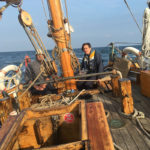
Futurefarmers/Amy Franceschini

Futurefarmers/Amy Franceschini
2020 - $10,000 FogHouse Project
2017 - $15,000 Seed Journey
2010 - $5,000 Free Soil: Farming 2050 Publication
2007 - $10,000 Victory Garden Project
Amy Franceschini is a pollinator who creates formats for exchange and production that question and challenge the social, cultural and environmental systems that surround her. In 1995, Amy founded Futurefarmers, an international collective of artists. In 2004, Amy co-founded Free Soil, an international collective of artists, activists, researchers, and gardeners who work together to propose alternatives to the social, political and environmental organization of space.Victory Gardens
Victory Gardens 2007+ calls for a more active role for cities in shaping agricultural and food policy. It is a concept in development with the city of San Francisco that would provide a subsidized home gardening program for individuals and neighborhoods. This program offers tools, training & materials for urban dwellers to participate in a city-wide transformation of underutilized backyards— turning them into productive growing spaces. The project draws from the historical model of the 1940's American Victory Garden program to provide a basis for developing urban agriculture as a viable form of sustainable food practice in the city.
Farming 2050
The first issue of the annual journal Free Soil, FARMING 2050, documents a one-day experiment where eleven artists, farmers, writers, policy makers, architects and philosophers were invited to imagine farming in 2050. What will it look like and how will we get there? What materialized was a range of apprehensions, evaluations and revelatory combinations of fact and fiction that offer a diverse look on the future of farming. This hyper-local portrait of critical, San Francisco voices reflects a sense of optimism intertwined with serious demands to re-evaluate the current logic that dominates our food system.
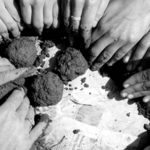

Garden for the Environment
2009 - $10,000 Green House Capital Campaign
2008 - $10,000 General Support
2007 - $10,000 General Support
Garden for the Environment (GFE) maintains a nationally acclaimed one-acre urban demonstration garden and offers environmental education programs about organic gardening, urban compost systems and sustainable food systems. Since its founding in 1990, the garden has operated as a demonstration site for small-scale urban ecological food production, organic gardening and low water-use landscaping.
Today, GFE’s programs include four central educational elements; a three month intensive Gardening and Composting Educator Training program, monthly Compost Education workshops conducted at the garden and community gardens throughout San Francisco, the Resource Efficient Landscape Education series, and the School Education program offered in partnership with San Francisco Unified School District and San Francisco’s Department of the Environment.
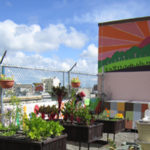
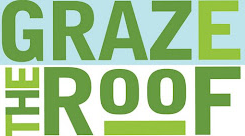
Graze The Roof
2009 – $5,000 General Support
Graze the Roof (GTR) is an edible, community-produced vegetable garden on the rooftop of Glide Memorial Church, a progressive church and nonprofit located in the Tenderloin district of San Francisco. GTR features soil-less gardening vegetable growers; self-watering containers; lightweight garden beds made from milk crates; a worm composting system and an educational mural, which ties the whole project together. Glide youth and volunteers from throughout the Bay Area maintain the garden and host monthly tours and workshops.
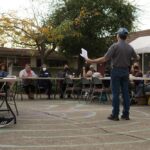
Great Communities Collaborative

Great Communities Collaborative
2022 - $25,000 General Support
The Great Communities Collaborative (GCC), launched in 2005, is a multi-sector initiative housed at San Francisco Foundation that engages local organizations in shaping the future of housing, transportation, regional land use, and climate resilience in the nine-county Bay Area.
The Great Communities Collaborative convenes funders, public sector agencies, elected officials, and nonprofit organizations through the GCC Funders Network and multiple working groups. Together we envision and advance a racially equitable, economically inclusive, and environmentally sustainable Bay Area with thriving neighborhoods that are well connected to regional opportunities and affordable for people of color and underpaid workers. We also help protect people’s ability to stay in their homes, preserve existing affordable housing, and promote the production of new affordable housing, especially on public lands.
By involving more people in planning and decision-making about their neighborhoods, GCC helps bring a diversity of voices into conversations around the future of our cities, counties, and the Bay Area as a whole, leading to new policies and practices around regional planning. They tackle regional inequities by collaboratively funding efforts that:
Champion Racial Equity: Great Communities Collaborative works to ensure that marginalized communities – which are often predominately made up of Black, Indigenous, and other people of color – are involved in decision making around housing, transportation, land use, and climate resilience, to drive outcomes that promote racial equity and economic inclusion. Great Communities Collaborative produced a report in March 2022 called Five Ways Philanthropy Can Catalyze Tenant-Centered Housing Preservation with LISC Bay Area and San Francisco Foundation, which outlines how the pandemic has disproportionately affected the housing stability of people of color, and how to preserve housing through a tenant-centered lens to achieve equity.
Center Impacted People: Great Communities Collaborative funders, partners, priorities, program areas, and strategies center Black, Indigenous, and people of color communities who have experienced and are experiencing the harshest impacts from historical and systemic racial discrimination and economic marginalization. We believe that the people most impacted by inequities should be involved in designing their own solutions, so we strive to center their expertise, be guided by their lived experiences, amplify their voices, advance their solutions, and position them as leaders for outreach, education, and advocacy efforts, including engaging with policymakers.
GCC funded local organizing through the Silicon Valley Rising Coalition, which includes many labor and community organizations. The coalition gathered community input through three town hall meetings and a community survey. GCC also funded a research study to quantify the impact of the proposed Google campus on the surrounding area, which gave advocates the necessary data to push for greater commitments around affordable housing. The Silicon Valley Rising Coalition ultimately achieved a landmark $200M community benefits agreement from Google in 2021 for downtown San Jose, which included $150M for affordable housing and community stabilization.
Change Policies and Systems: As a multi-sector network of organizations and agencies, the very purpose of Great Communities Collaborative is to bring people together to share, learn, and find solutions to some of the Bay Area’s most pressing problems. GCC was involved in passing AB 1486 to build a regional “Public Land for Public Good” framework to get more Affordable Housing built on public land. As a result, 75% of new affordable housing in San Mateo County will now be built on public land. GCC helped launch two housing loan funds at the Metropolitan Transportation Commission (MTC) – the $40M Bay Area Transit Oriented Affordable Housing Fund (TOAH) and the $49M Bay Area Preservation Pilot (BAPP). Both funds prioritize projects that will create affordable housing for people of color, low-income people, and marginalized communities. We promote policy solutions because they can transform the root causes of our state’s inequality crises. These inequalities are rooted in policies and practices that, collectively, we have the power to change.
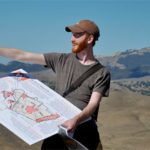

Greenbelt Alliance
2022 - $20,000 Resilience Hotspots
2007 - $10,000 General Support
About Greenbelt Alliance
The Bay Area has a major problem: we aren’t ready for climate change. Greenbelt Alliance is rising to the challenge by educating people, advocating for bold change and collaborating across sectors to address the climate crisis. Over Greenbelt Alliance’s 65-year history, the organization has stewarded this region’s beautiful natural landscapes while promoting the growth needed for communities to thrive for generations to come. As a result of this work, almost 3.3 million acres of the Bay Area’s nine counties are protected open spaces.
Today, Greenbelt Alliance leverages its expertise in land-use policy advocacy and regional collaboration to realize a climate-resilient Bay Area. This looks like communities and people thriving in the places they live, work, and play. Staying safe during climate disasters. Connecting with open spaces in new and powerful ways. Suffering less and recovering quickly after the next wildfire, flood, or drought. All thanks to equitable solutions drawing on the powerful role of nature. The path toward this future is complex and more urgent than ever, which is why Greenbelt Alliance focuses on data-driven and innovative policy solutions while fostering much-needed regional collaboration to plan and invest in resilient communities.
Over the last seven years alone, Greenbelt Alliance has protected over 70,000 acres of open space lands from development. These lands provide critical resources for worsening climate impacts by serving as natural buffers during wildfires, providing groundwater during drought, and offering refuge during uncertain times. Greenbelt Alliance has also spurred the approval of over 19,000 new homes during the same seven-year span through the Climate SMART—Sustainable, Mixed, Affordable, Resilient, Transit-Oriented—Development Program. This SMART development creates communities in balance with nature, reducing greenhouse gas emissions, and increasing resilience to climate-related risks.
Bay Area Resilience Hotspots Project
Across the Bay Area, there is a need for prioritizing nature-based climate resilience projects to protect communities that are most vulnerable to climate change—in ways that have multiple benefits to habitat, open space, biodiversity, recreation, and more. Through the Bay Area Resilience Hotspots project, Greenbelt Alliance is bringing together climate, sprawl development, and social vulnerability data and convening local stakeholders to collaboratively identify pathways to increase investment in on-the-ground resilience initiatives. Through a community-driven process, Greenbelt Alliance is advancing planning and policy solutions co-created with resident voices and bringing people together with local government to ensure underrepresented members of the community have the opportunity to shape the future of their city or county. The Bay Area Resilience Hotspots initiative leverages collaboration and data to enable cities and communities to build consensus on resilience priorities that not only prioritize conservation, but also social and economic factors that are key to crafting powerful climate solutions. Ultimately, this work will increase land protection and stewardship in ways that enhance biodiversity and build equitable resilience to climate change across the Bay Area.
Methodology and Outcomes
Through a robust spatial analysis process, Greenbelt Alliance has compiled regional data to identify opportunities for nature-based solutions that will allow us to respond to wildfire, flooding, and extreme heat events. This work was informed by creating methodologies that incorporate not only physical features of a place like climate and sprawl risk, but also socioeconomic factors that can make some populations more vulnerable to climate hazards. This process was guided by a diverse group of technical advisors who reviewed methodology and data and provided feedback on best practices.
Using this mapping and data, Greenbelt Alliance is partnering with local leaders to understand the context on-the-ground and co-create priority actions. Climate adaptation and resilience must be locally appropriate and supported by community leaders. Central to the Bay Area Resilience Hotspots project is the development of strong local partners and stakeholders to drive this vital work forward—providing geographically-specific knowledge and expertise that is critical to adequately interpreting and contextualizing data and collaborating on multi-benefit solutions. Greenbelt Alliance is partnering with locally rooted organizations, community leaders, and key stakeholders to center past and ongoing resilience efforts, document priorities for adaptation, create shared narratives around data, and develop pathways towards resilience that meet joint goals and priorities. For each hotspot location, a Community Resilience Profile will present these shared objectives for a broader audience.
Community Resilience Profiles are easy-to-understand narratives that will be used to build support and focus resources on priority hotspots locations. Greenbelt Alliance is sharing the stories of these priority hotspots through a dedicated webpage and interactive map for anyone to use. Ultimately, the goal of this work is to advance on-the-ground resilience investments throughout the Bay Area. These resources can be used for advocates to promote climate resilient policies, enable local coalitions to develop project concepts and apply for funding, and build overall support for resilience action.
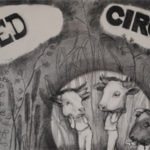
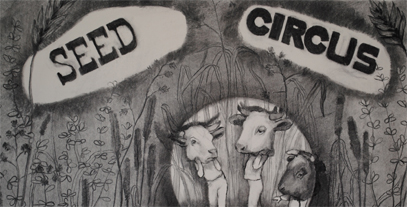 Greenhorns
2012 - $5,000 Seed Circus
The Greenhorns is a grassroots non-profit organization made up of young farmers and many collaborators. Their mission is to recruit, promote and support the new generation of young farmers. Using radio, blogs, film, and live events, the Greenhorns build agrarian culture by connecting young farmers with information, land, and each other.
America wants more young farmers and more young farmers want a piece of America. We know it will take millions of these rough and ready protagonists of place to care for our ecosystems and serve our country healthy food in the years to come. The Greenhorns enable this critical meeting between minds, bodies, and land by helping young and aspiring farmers to navigate career paths, build skills, and connect with each other. Our multifaceted approach includes on-the-ground organizing of events and workshops, media production, and online coalition building.
The Seed Circus is a series of cultural events engages attendees in tactile, sensual, and cacophonous experiences containing elements of country fair, circus, adult education, and child-centered sport as entry points into advocating for an alive and vital farm economy. Its purpose is to build capacity on farms for functionality and agrarian celebration. More widely it is meant to trigger greater understanding of the young farmers movement. It functions as a series of multi-stage performances, interactive work stations, public acts of improvisation, lectures, films, and interpretive agricultural exhibits. Seed Circus' have taken place in New York and Oakland, CA. Plans are in the works for a Seed Circus in Washington DC in September 2013.
thegreenhorns.net
Greenhorns
2012 - $5,000 Seed Circus
The Greenhorns is a grassroots non-profit organization made up of young farmers and many collaborators. Their mission is to recruit, promote and support the new generation of young farmers. Using radio, blogs, film, and live events, the Greenhorns build agrarian culture by connecting young farmers with information, land, and each other.
America wants more young farmers and more young farmers want a piece of America. We know it will take millions of these rough and ready protagonists of place to care for our ecosystems and serve our country healthy food in the years to come. The Greenhorns enable this critical meeting between minds, bodies, and land by helping young and aspiring farmers to navigate career paths, build skills, and connect with each other. Our multifaceted approach includes on-the-ground organizing of events and workshops, media production, and online coalition building.
The Seed Circus is a series of cultural events engages attendees in tactile, sensual, and cacophonous experiences containing elements of country fair, circus, adult education, and child-centered sport as entry points into advocating for an alive and vital farm economy. Its purpose is to build capacity on farms for functionality and agrarian celebration. More widely it is meant to trigger greater understanding of the young farmers movement. It functions as a series of multi-stage performances, interactive work stations, public acts of improvisation, lectures, films, and interpretive agricultural exhibits. Seed Circus' have taken place in New York and Oakland, CA. Plans are in the works for a Seed Circus in Washington DC in September 2013.
thegreenhorns.net
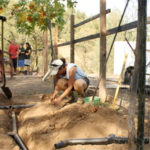
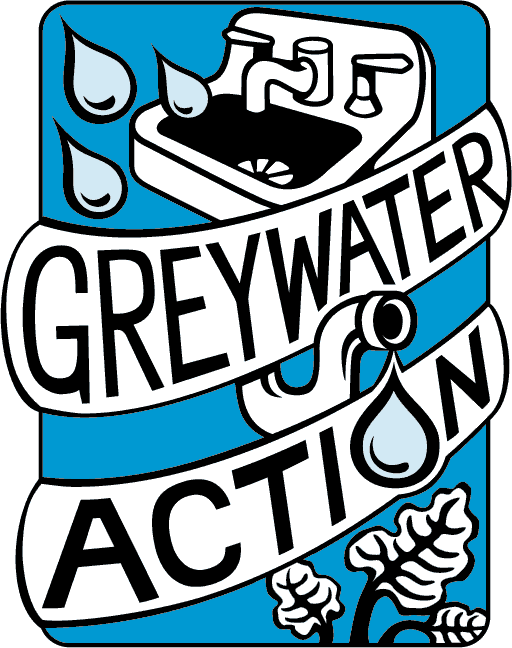
Greywater Action
2010 - $2,000 General Support
Greywater Action is a collaborative group of educators, designers, builders and artists who educate and empower people to build sustainable water culture and infrastructure. Their teaching tools include interactive models of composting toilets and greywater systems and design/installation workshops. Through hands on workshops and presentations, Greywater Action has educated hundreds of people about the process of greywater system design and construction, and built greywater systems at dozens of houses in cities in California and beyond.
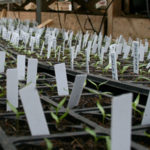
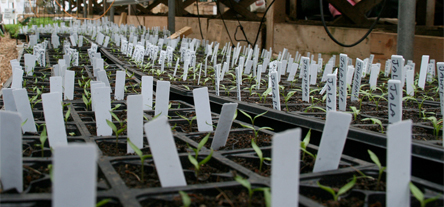 Growing Power
2010 - $2,000 Educational Outreach
Growing Power is a national nonprofit organization and land trust based in Milwaukee, Wisconsin. They support people from diverse backgrounds, and the environments in which they live, by helping to provide equal access to healthy, high-quality, safe and affordable food. Growing Power implements this mission by providing hands-on training, demonstrations, outreach and technical assistance through the development of Community Food Systems that help people grow, process, market and distribute food in a sustainable manner.Since its inception, Growing Power has served as a ”living museum” or “idea factory” for the young, the elderly, farmers, producers, and other professionals ranging from USDA personnel to urban planners. Training areas include the following: acid-digestion, anaerobic digestion for food waste, bio-phyto remediation and soil health, aquaculture closed-loop systems, vermiculture, small and large scale composting, urban agriculture, permaculture, food distribution, marketing, value-added product development, youth education, community engagement, participatory leadership development, and project planning.
growingpower.org
Growing Power
2010 - $2,000 Educational Outreach
Growing Power is a national nonprofit organization and land trust based in Milwaukee, Wisconsin. They support people from diverse backgrounds, and the environments in which they live, by helping to provide equal access to healthy, high-quality, safe and affordable food. Growing Power implements this mission by providing hands-on training, demonstrations, outreach and technical assistance through the development of Community Food Systems that help people grow, process, market and distribute food in a sustainable manner.Since its inception, Growing Power has served as a ”living museum” or “idea factory” for the young, the elderly, farmers, producers, and other professionals ranging from USDA personnel to urban planners. Training areas include the following: acid-digestion, anaerobic digestion for food waste, bio-phyto remediation and soil health, aquaculture closed-loop systems, vermiculture, small and large scale composting, urban agriculture, permaculture, food distribution, marketing, value-added product development, youth education, community engagement, participatory leadership development, and project planning.
growingpower.org
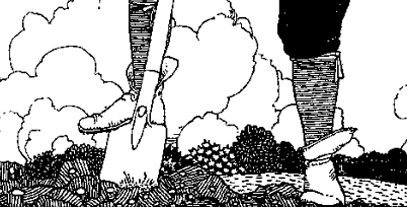 Iain Boal
2009 Fellow
Iain Boal is a social historian of science and technics, affiliated with the University of California and Birkbeck College, London. Boal is one of the founders of the Retort collective, an association of radical writers, teachers, artists, and activists, which has existed in the San Francisco Bay Area for the past two decades, with whom he co-authored Afflicted Powers: Capital and Spectacle in a New Age of War along.He is co-editor of Resisting the Virtual Life: The Culture and Politics of Information and author of The Green Machine, A history of the Bicycle. His forthcoming book The Long Theft: Episodes in the History of Enclosure, traces key episodes in the history of ’enclosure’ – the fencing off, literally and figuratively, of the world’s commoners from their means of livelihood. In 2005/6 he was a Guggenheim Fellow in Science and Technology.
Iain Boal
2009 Fellow
Iain Boal is a social historian of science and technics, affiliated with the University of California and Birkbeck College, London. Boal is one of the founders of the Retort collective, an association of radical writers, teachers, artists, and activists, which has existed in the San Francisco Bay Area for the past two decades, with whom he co-authored Afflicted Powers: Capital and Spectacle in a New Age of War along.He is co-editor of Resisting the Virtual Life: The Culture and Politics of Information and author of The Green Machine, A history of the Bicycle. His forthcoming book The Long Theft: Episodes in the History of Enclosure, traces key episodes in the history of ’enclosure’ – the fencing off, literally and figuratively, of the world’s commoners from their means of livelihood. In 2005/6 he was a Guggenheim Fellow in Science and Technology.
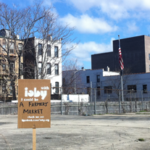

ioby
2014 - $10,000 Crowdfunding Workshop
ioby is a community of donors, volunteers and leaders working together to make their neighborhoods stronger and more sustainable. ioby is a crowd-resourcing digital platform that supports citizen-led, neighbor-funded projects related to food, transit, sharing, public health, public art, environment, schools, tactical urbanism and creative placemaking. For this project, ioby will host an intensive training on grassroots fundraising and crowdfunding for Seed Fund grantees in San Francisco.
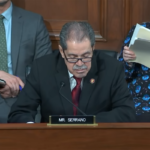

Island Press
2023 - $10,000 Founders’ Pot
2022 - $10,000 Founders’ Pot
2021 - $15,000 Diversity, Equity and Inclusion Work
2021 - $10,000 Founders’ Pot
2020 - $15,000 Online Programming During COVID-19 Pandemic
2020 - $25,000 Founders’ Pot
2019 - $25,000 General Support
2018 - $5,000 Founders’ Pot for General Operating Support
2017 - $5,000 Founders’ Pot for General Operating Support
2017 - $5,000 General Support
2016 - $5,000 General Support
2015 - $5,000 General Support
2014 - $5,000 General Support
2013 - $10,000 Sustainability Knowledge Network
2011 - $5,000 General Support
Island Press supports the environmental community in advancing their knowledge and practice which, ultimately, improves the natural systems on which humankind depends. A non-profit organization, its mission is to provide the best ideas and information to those seeking to understand and protect the environment and create solutions to its complex problems.
From its growing network, Island Press identifies promising thinkers, inspiring stories, and game-changing ideas to publish some 30 books each year. Island Press’ publishing expertise delivers critical information that enhances the work of thousands of professionals striving to create healthier, more sustainable, and more just communities. Today, Island Press is one of the nation's leading providers of environmental ideas and solutions.
Island Press’ goal is to spark lasting solutions to environmental problems. Its approach is two-fold:
Island Press identifies and shapes the best ideas, methods, and approaches into accessible content. The most valuable lessons come from those who are doing the work—the scientists, activists, and professionals who are leading change every day. But these problem-solvers often need guidance on how to share their experience with others. Without the editorial and communications support Island Press provides, important new voices would be left unheard, and effective approaches unknown.
The field needs cutting-edge information and practical solutions to a wide range of problems. Island Press taps into a distribution network of environmental movement leaders, researchers, policymakers, professionals, and the public. The organization’s reach extends into many areas, ranging from transportation planning and food systems to affordable housing and green space.
Setting this work apart from for-profit publishers, Island Press is committed to providing reliable, science-based knowledge in digital formats—webinars, articles, opinion pieces, and online courses—most of them free.
Island Press has developed a body of environmental literature that is considered by many to be the most comprehensive, rigorous, and innovative available. This work is shaping policies, establishing thought leaders, and advancing influential concepts that have had important real-world impacts.
Creating Safer Streets for All: Publishing the Urban Street Design Guide guided billions of dollars in infrastructure spending for energy-saving, carbon-reducing public transit and pedestrian-friendly streets across the country.
Reducing Toxic Chemicals: The award-winning Whitewash: The Story of a Weed Killer, Cancer, and the Corruption of Science led to limits on the cancer-causing chemical glyphosate (the main ingredient in Roundup) in several countries, as well as on college campuses and public lands across the U.S.
Regulating Overfishing: The Most Important Fish in the Sea led to the first-ever limits on menhaden fishing, which had reached unsustainable levels. The quota resulted in a 26% reduction in the menhaden catch—a huge victory for fishing communities and conservationists.
As workplaces closed and events were canceled, Island Press moved quickly to create more online offerings for professionals and students who were now working from home. Island Press released a dozen e-books for free and nearly tripled its schedule of free webinars for professionals. As a result, attendance to online trainings more than doubled. This evolving approach helped the organization grow the number of people it serves, and has widened its geographic reach.
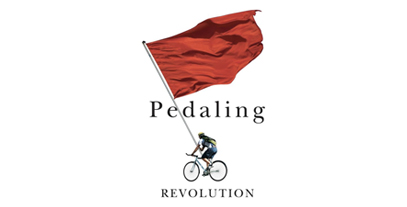 Jeff Mapes
2011 Fellow
Jeff Mapes is the author of Pedaling Revolution: How Cyclists are Changing American Cities (Oregon State University Press, 2009) which describes the growing urban bike culture that is changing the look and feel of U.S. cities.
Mapes, a seasoned political journalist and long-time bike commuter, explores the growth of bicycle advocacy while covering such issues as the environmental, safety, and health aspects of bicycling for short urban trips. Chapters set in Chicago and Portland show how bicycling has became a political act, with seemingly dozens of subcultures, and how cyclists - with the encouragement of local officials - are seizing streets back from motorists. Bike activists are creating the future of how we travel and live in twenty-first-century cities.
Jeff Mapes
2011 Fellow
Jeff Mapes is the author of Pedaling Revolution: How Cyclists are Changing American Cities (Oregon State University Press, 2009) which describes the growing urban bike culture that is changing the look and feel of U.S. cities.
Mapes, a seasoned political journalist and long-time bike commuter, explores the growth of bicycle advocacy while covering such issues as the environmental, safety, and health aspects of bicycling for short urban trips. Chapters set in Chicago and Portland show how bicycling has became a political act, with seemingly dozens of subcultures, and how cyclists - with the encouragement of local officials - are seizing streets back from motorists. Bike activists are creating the future of how we travel and live in twenty-first-century cities.
 Jennifer Wolch
2012 Fellow
The challenges of building healthier and more sustainable cities motivate the research of Jennifer Wolch, UC Berkeley College of Environmental Design (CED). Before coming to UC Berkeley to serve as CED’s first woman dean, Wolch directed the Center for Sustainable Cities at the University of Southern California, where she conducted research on urban sprawl, metropolitan planning, and access to parks and open space. Her work done in collaboration with colleagues, students, and community-based organizations, included investigations into urban homelessness; formulating alternatives to sprawl; analyses of park and recreational resource access and environmental justice; development of web-based geospatial planning tools for watershed health, habitat conservation, and park space projects; assessments of urban alleys as potential green infrastructure; and studies of how urban design influences physical activity and public health.
In the Bay Area, Wolch continues to work on issues of how to utilize remnant urban land as green infrastructure and how park-adjacent traffic crashes and air pollution deepen environmental justice issues associated with parks and open space. She has also initiated investigations into issues of park access and urban ecology in Chinese cities.
ced.berkeley.edu/ced/people
Jennifer Wolch
2012 Fellow
The challenges of building healthier and more sustainable cities motivate the research of Jennifer Wolch, UC Berkeley College of Environmental Design (CED). Before coming to UC Berkeley to serve as CED’s first woman dean, Wolch directed the Center for Sustainable Cities at the University of Southern California, where she conducted research on urban sprawl, metropolitan planning, and access to parks and open space. Her work done in collaboration with colleagues, students, and community-based organizations, included investigations into urban homelessness; formulating alternatives to sprawl; analyses of park and recreational resource access and environmental justice; development of web-based geospatial planning tools for watershed health, habitat conservation, and park space projects; assessments of urban alleys as potential green infrastructure; and studies of how urban design influences physical activity and public health.
In the Bay Area, Wolch continues to work on issues of how to utilize remnant urban land as green infrastructure and how park-adjacent traffic crashes and air pollution deepen environmental justice issues associated with parks and open space. She has also initiated investigations into issues of park access and urban ecology in Chinese cities.
ced.berkeley.edu/ced/people

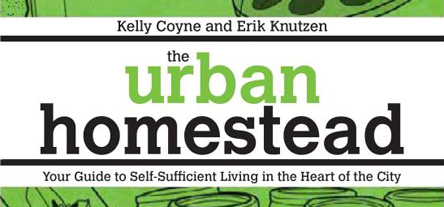 Kelly Coyne and Erik Knutzen
2009 Fellows
Kelly Coyne and Erik Knutzen are the authors of The Urban Homestead: Your Guide to Self-Sufficient Living in the Heart of the City and Making It: Radical Home Ec for a Post-Consumer World. They founded the blog rootsimple.com in 2006.
They live in the heart of Los Angeles, in a bungalow set on a 1/2 acre lot where almost all of their land is devoted to growing edible or otherwise useful plants and trees. Their obsessions include bees, bikes, beer, chickens, dogs, healthy cities, healing herbs, simple living and good food.
rootsimple.com
Kelly Coyne and Erik Knutzen
2009 Fellows
Kelly Coyne and Erik Knutzen are the authors of The Urban Homestead: Your Guide to Self-Sufficient Living in the Heart of the City and Making It: Radical Home Ec for a Post-Consumer World. They founded the blog rootsimple.com in 2006.
They live in the heart of Los Angeles, in a bungalow set on a 1/2 acre lot where almost all of their land is devoted to growing edible or otherwise useful plants and trees. Their obsessions include bees, bikes, beer, chickens, dogs, healthy cities, healing herbs, simple living and good food.
rootsimple.com
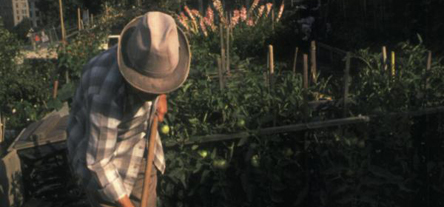 Laura Lawson
2009 Fellow
Laura Lawson is an acclaimed author, landscape architect and avid gardener. Currently she is the Chair for the Landscape Architecture Department at Rutgers University. She has been documenting and writing about community gardens for over fifteen years and has produced several articles and two books - City Bountiful: A History of Community Gardening in America (University of California Press, 2005) and Greening Cities, Growing Communities: Learning from Seattle’s Urban Community Gardens (co-authored with Jeff Hou and Julie Johnson, University of Washington Press, 2009).Lawson continues her documentation of urban gardens, focusing on the cities of Chicago, Detroit, New York, and San Francisco. Her intense background research on the historic evolution of each city developed into a comparative framework to identify key themes/issues to compare across the different cities.
Laura Lawson
2009 Fellow
Laura Lawson is an acclaimed author, landscape architect and avid gardener. Currently she is the Chair for the Landscape Architecture Department at Rutgers University. She has been documenting and writing about community gardens for over fifteen years and has produced several articles and two books - City Bountiful: A History of Community Gardening in America (University of California Press, 2005) and Greening Cities, Growing Communities: Learning from Seattle’s Urban Community Gardens (co-authored with Jeff Hou and Julie Johnson, University of Washington Press, 2009).Lawson continues her documentation of urban gardens, focusing on the cities of Chicago, Detroit, New York, and San Francisco. Her intense background research on the historic evolution of each city developed into a comparative framework to identify key themes/issues to compare across the different cities.
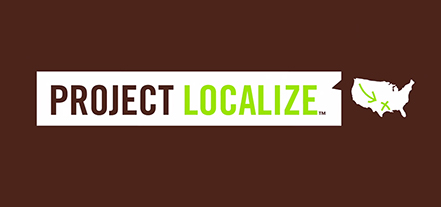
Lexicon of Sustainability
2016 - $10,000 Project Localize
The Lexicon of Sustainability operates with the express purpose of creating and sharing intelligently designed messaging tools and activism toolkits needed by the movement’s non-profit organizations, educators and thought leaders to advance a sustainable future for everyone. Project Localize addresses the need for increased eco-literacy and digitally active students communicating with the world around them. Participants are taught how to understand a circular economy through key subjects representing sustainability. The project is distinct in its inclusion of skill building with authentic public participation on meaningful civic issues. The program provides mentoring for students, teachers and community leaders at key points in the learning experience. Project Localize is in its fourth year of development and has expanded to 42 high schools and hundreds of elementary schools in America with delegations from all over the North Bay participating since 2012.

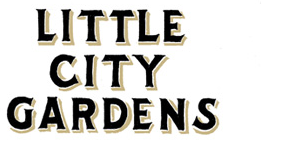
Little City Gardens
2010 - $2,500 Zoning Code Advocacy Work
Little City Gardens is an experiment in the economic viability of small-scale urban market-gardening. Located on a three quarter of an acre plot in San Francisco, they have been working steadily towards crafting a way for urban food production to sustain a farm economically and build community through innovative, collaborative local food systems. This process will allow the establishment of the ‘urban farmer’ as a career.
Little City Gardens is currently a small salad greens business, an educational site, and a working model of food production in San Francisco. Advocacy work done by the founders of Little City Gardens, Brooke Budner and Caitlyn Galloway, was crucial for the 2011 changes in San Francisco zoning code that now allows for and encourages urban agriculture.
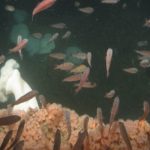
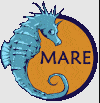
MARE
2016 - $10,000 Deepwater Ecological Assessment
MARE (Marine Applied Research & Exploration) seeks to increase literacy in ocean sciences through formal and informal education initiatives. One such project is a deepwater ecological assessment of the north coast region of California. This project deployed the remotely operated vehicle (ROV) Beagle to visually survey the deepwater seafloor while gathering oceanographic information during expeditions in 2014 and 2015. The assessment establishes a two-year baseline of “who is living” where, along with their habitat associations, inside and outside the newly created Marine Protected Areas (MPAs) from Fort Bragg to the Oregon Border. MARE staff will count, identify and geo-reference the fish and invertebrates, and characterize the subsea habitat along the North Coast and identify focal or indicator species for monitoring ocean health into the future.
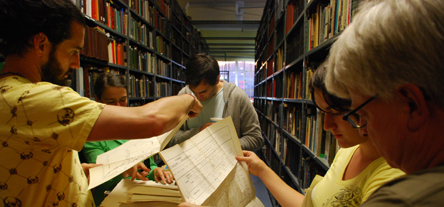 Megan & Rick Prelinger
2012 Fellows
The Prelinger Library is a private research library open to the public co-founded by Megan and Rick Prelinger. It houses more than forty thousand books and other print artifacts on North American technology, regional & land use history, media & cultural studies, including a space history collection.
Megan Prelinger is an independent historian and a lifelong collector of space history ephemera and science fiction literature.
Rick Prelinger is an archivist, writer and filmmaker. He also founded Prelinger Archives, whose collection of 51,000 advertising, educational, industrial, and amateur films was acquired by the Library of Congress in 2002. Rick has partnered with the Internet Archive to make 2,000 films from Prelinger Archives available online for free viewing, downloading and reuse.
prelingerlibrary.org
Megan & Rick Prelinger
2012 Fellows
The Prelinger Library is a private research library open to the public co-founded by Megan and Rick Prelinger. It houses more than forty thousand books and other print artifacts on North American technology, regional & land use history, media & cultural studies, including a space history collection.
Megan Prelinger is an independent historian and a lifelong collector of space history ephemera and science fiction literature.
Rick Prelinger is an archivist, writer and filmmaker. He also founded Prelinger Archives, whose collection of 51,000 advertising, educational, industrial, and amateur films was acquired by the Library of Congress in 2002. Rick has partnered with the Internet Archive to make 2,000 films from Prelinger Archives available online for free viewing, downloading and reuse.
prelingerlibrary.org
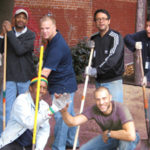
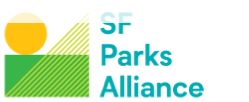
Neighborhood Parks Council
2007 – $5,000 General Support
The Neighborhood Parks Council (NPC) advocates for a superior, equitable and sustainable park and recreation system. Since 1996, NPC has grown to include over a hundred and twenty park groups and four thousand park volunteers, establishing itself as San Francisco’s premier park advocacy group. It provides leadership and support to park users through community-driven stewardship, education, planning and research. NPC strives to increase public and private support for, and commitment to, the restoration and improved maintenance of our neighborhood parks, playgrounds, and recreation facilities. In addition to technical assistance, NPC provides a forum for sharing information and experience at park planning meetings in each District, including educational presentations and workshops with guest speakers and topic experts.
In 2011 NPC merged with The San Francisco Parks Trust to form the San Francisco Parks Alliance.
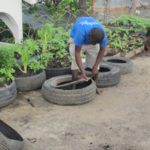
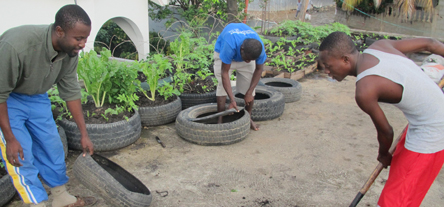
Nouvelle Vie, Haiti
2010 - $5,000 Permaculture Training Programs
The Nouvelle Vie Youth Corps is a network of young Haitian leaders who serve Haiti’s trauma relief and food security needs, empowering Haitian communities toward greater self-reliance.
Since the earthquake in 2010 the Youth Corps has been providing trauma relief and food security services to thousands of people impacted by the disaster. Our food security program involves identifying and reaching out to vulnerable populations, particularly schools and orphanages, and conducting basic training in permaculture techniques aimed at enabling these populations to grow their own food and convert organic wastes into soil through composting. We focus on simple and effective techniques for growing substantial quantities of nutritious food on small footprints of land, such as vertical rice sack gardens. A grant of $5,000 supports the training costs for at least one student. After the training, each student will have the skills and support needed to train at least 1,000 people per year in practical sustainable agricultural techniques, a substantial return on investment in the development of a grassroots sustainable food system in Haiti.
 Novella Carpenter
2009 Fellow
Novella Carpenter is an urban farmer, author, and biofuel champion. Her work has appeared on Salon.com, Sfgate.com, and Food and Wine magazine. She is the author of Farm City: The Education of an Urban Farmer (Penguin, 2010). Farm City tells the story of her urban farm in Oakland, California where for more than ten years, Carpenter has been raising and living off of her own rabbits, chickens, bees, fruits, and vegetables. She also co-authored The Essential Urban Farmer (Penquin, 2010) with City Slicker Farms founder, Willow Rosenthal.
ghosttownfarm.wordpress.com
Novella Carpenter
2009 Fellow
Novella Carpenter is an urban farmer, author, and biofuel champion. Her work has appeared on Salon.com, Sfgate.com, and Food and Wine magazine. She is the author of Farm City: The Education of an Urban Farmer (Penguin, 2010). Farm City tells the story of her urban farm in Oakland, California where for more than ten years, Carpenter has been raising and living off of her own rabbits, chickens, bees, fruits, and vegetables. She also co-authored The Essential Urban Farmer (Penquin, 2010) with City Slicker Farms founder, Willow Rosenthal.
ghosttownfarm.wordpress.com
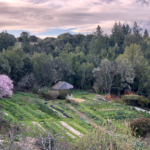
Occidental Arts and Ecology Center

Occidental Arts and Ecology Center
2016 - $10,000 General Support
2009 - $10,000 Greenhouse Project
2007 - $5,000 General Support
The Occidental Arts & Ecology Center (OAEC) is an 80-acre research, demonstration, advocacy, and organizing center in Sonoma County, California that develops strategies for regional-scale community resilience.
For over 30 years the OAEC site has been a sustainable agriculture training center, working with thousands of farmers, community and school gardeners, and food and farming activists. For more than a decade, the OAEC has become recognized as a national leader in research, demonstration and participatory education in a variety of ecological and agricultural issue areas.


Open Plans
2023- $15,000 General Support
Founded in 1999 as a nonprofit organization dedicated to making New York City more livable, Open Plans works to foster a more connected relationship between New Yorkers, their streets, and their city government. In its early years, the organization focused on developing mapping tools as a way to analyze the issues that affect New Yorkers on a block-by-block basis. Using the information gathered, the organization began to not only map the issues but develop and propose solutions. Topics included public transportation; the use of streets as spaces for community gathering, neighborhood celebration, and events; public safety challenges caused by car dominance; lack of infrastructure for micromobility and pedestrians; and the desire for more equitable access to accessible, safe, public spaces.
In 2004, Open Plans launched Streetfilms, a project that produces and publishes short films highlighting best practices for transportation systems and public spaces around the world. These informative, playful, and inspiring films continue to fuel advocacy efforts today -- and garner huge wins the world over, including the launch and expansion of a robust protected bike lane network in New York City, bike access across the Queensboro and Brooklyn Bridges and complete redesigns of iconic areas such as the Meatpacking District in Lower Manhattan.
In 2006, Open Plans launched Streetsblog, a daily news source providing deep dives and insider scoops, chronicling the transportation and livable streets scene in New York City and beyond. Inspiring offshoots in many of the major cities in the United States, Streetsblog has become a one-stop shop for all the news that’s fit to discuss regarding transportation, policy, planning, advocacy, budgets, and more. Its readership includes hobbyists, urbanism professionals, and city officials alike. From their annual Parking Madness awards to their recent coverage of the fight for safe and equitable public spaces for all, including the right to protest and the rights of delivery workers, Streetsblog is always on the cutting edge.
In 2008 and 2009, Open Plans launched the New York City Streets Renaissance Campaign, in collaboration with Transportation Alternatives and Project for Public Spaces. This campaign challenged the auto-centric policies that create congested and unsafe, inhospitable streets. This work led to the first protected bike lanes in New York City, along 9th Avenue in Chelsea, along with years of streetscape changes on the Upper West Side.
Between 2010 and 2015, Open Plans built on their success and merged their tech and advocacy foci, working with municipalities on tools for mapping and advocated for open source data tools for people to engage with their communities. The organization created maps allowing people to indicate issues in their neighborhoods, specifically around mobility and public space. Working with schools became a major focus; a new education and advocacy arm of the organization taught students how to identify safety issues on their commutes to school and empowered them to navigate their paths more safely. This work often led to students learning more about urban design and civics. Through drawings, petitions, and letters, students spoke at community boards and even engaging with elected officials, learning the power of civic engagement.
By late 2018, StreetopiaUWS was created to reinvest in Open Plans’ long-standing work in the Upper West Side neighborhood of Manhattan. Rooted in grassroots advocacy, Streetopia’s debut campaign was launched to educate people about public space management and start advocating for the city to care for public spaces, especially in residential areas. Today the place-based project works intimately with Upper West Side residents, decision makers, and other stakeholders to achieve safer bike routes and promote a people-centered mindset to placemaking and planning.
The Covid-19 pandemic created unprecedented challenges for New York City but ushered in a new era for Open Plans. As the city was forced to repurpose space for safe, outdoor public gatherings, many guiding principles of livability and people-centered space became commonplace. Suddenly, congested streets were transformed into car-free community space; curb lanes once relegated to parking were transformed into business-saving outdoor cafes. Open Plans seized on this spirit of innovation and gained momentum. The new Open Streets program offered a first-ever opportunity for communities to reprogram their streets for strolling, playing, dancing, and learning – and led to Open Plans’ campaign for a central Office of Public Space Management that would care for and invest in these burgeoning spaces as city services. The organization hired new policy expertise and pursued systemic change in city government while connecting directly with communities at the grassroots level.
This dual focus, with Streetsblog and Streetfilms creating compelling media, is a hallmark of Open Plans’ unique approach. Today, Open Plans continues to grow its nimble and focused staff. With a focus on advocacy, journalism, and inspiring film, Open Plans is illuminating new possibilities and creating meaningful change for every resident of New York City.
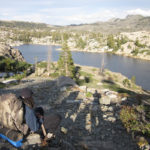

Outdoors Empowered Network
2018 - $10,000 Grant for Capacity Building
2017 - $10,000 General Support
2016 - $5,000 General Support
2015 - $7,500 General Support
2014 - $10,000 General Support
Outdoors Empowered Network is a national network of community-led, youth-centered outdoor education groups that are dedicated to increasing access and diversity in the outdoors through gear libraries and outdoor leadership training.
OEN’s member organizations support access to outdoor adventures for tens of thousands of youth each year. Members partner with youth service agencies, schools, and other youth-centered groups to make transformative outdoor experiences through these core programs:
Being part of OEN gives members the opportunity to build networks, share best practices, fundraise for gear, and see the national impact of collective work. The core “train and support” program model brings together a wide variety of members, all working together to bring equity and access to the outdoors.
Outdoors Empowered Network supports members in the following ways:
Member programs are at the heart of the work of Outdoors Empowered Network. Together, the network is working to increase our collective impact on the world, and create equitable access to nature.
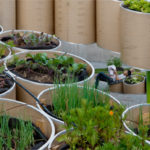
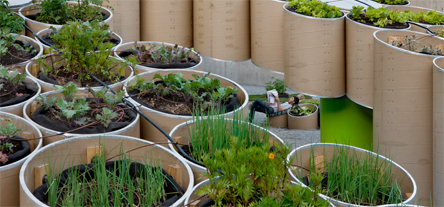
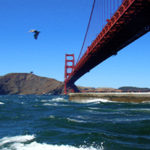
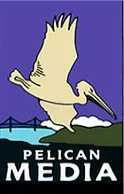
Pelican Dreams
2014 - $5,000 Postproduction
Judy Irving, filmmaker of The Wild Parrots of Telegraph Hill, focuses on large water birds in Pelican Dreams, a feature documentary starring “Gigi,” a starving young bird who stopped traffic on the Golden Gate Bridge, and “Morro,” an injured pelican who makes friends with a duck. The film is about wildness: How close can we get to a wild creature without taming or harming it? Why do we need wildness in our lives, and how can we protect it? Irving aims to connect urban dwellers with urban wildlife in our own backyard.
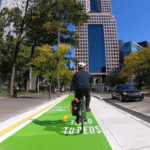

People for Bikes
2019 - $12,000 Biking Toolkit for Scoring Cities
The PeopleForBikes Foundation is a national, 501(c)(3) non-profit organization with the mission of putting more people on bicycles more often and making bicycling better for everyone. PeopleForBikes Foundation programs include PlacesForBikes, helping to build connected networks of bicycle infrastructure in U.S. cities through initiatives including the Final Mile, City Ratings and Advocacy Academy; the Better Bike Share Partnership, a grant-funded collaborative to improve access to and use of shared micromobility systems in low income and communities of color; the PeopleForBikes campaign, a powerful national movement of people who ride bikes and want riding to be safer, more comfortable and more accessible; and Ride Spot, a platform to help people find and share great places to ride.
Since its beginning, PeopleForBikes has been dedicated to helping cities, regions and advocacy organizations at the local and state levels advance, promote and build safe places to ride a bike. In recent years, this focus on infrastructure has been reflected through three integrated initiatives: Final Mile, City Ratings and Advocacy Academy.
Final Mile is accelerating the installation of complete mobility networks in five U.S. cities: Austin, Denver, New Orleans, Pittsburgh and Providence. By combining proven advocacy strategies with public communication tools, this effort builds broad support for new, cost-effective mobility networks. In each city network will increase bike riding and reduce single occupancy motorized vehicle trips. The Final Mile matches investments in mobility infrastructure made by its partner cities with support for specific needs identified by those cities. The program also provides a suite of additional resources including public opinion research, paid communications outreach through digital, broadcast and print media, and support for outreach and engagement activities through local non-profit organizations. The Final Mile cities will complete increases to their mobility networks of between 50 and 150 miles by the end of 2022.
City Ratings is a data-driven approach to evaluating more than 600 U.S. cities based on the connectivity of their bicycle networks and the experience of riding for those who live there. Using feedback from everyday bike riders, city staff, open-source maps and publicly available data, each city receives a score from 1-100. Detailed maps from the Bicycle Network Analysis tool helps leaders and staff pinpoint areas for improvement so that investments in infrastructure are leveraged for maximum benefit to the people who use it.
Advocacy Academy is an online video and resource library for city leaders, decision makers and advocates. It provides the necessary tools and information to understand how cities are evaluated through the City Ratings program and how to make cities better for bikes. The first series, Lessons from the Best Biking Cities, includes interviews with key staff and critical takeaways for how and why building a comprehensive bicycling network contributes to a stronger community.
The Better Bike Share Partnership (BBSP) is a grant-funded collaborative focused on increasing access to and use of shared micromobility in low-income and communities of color. Together with partners at the City of Philadelphia and the National Association of City Transportation Officials, PeopleForBikes launched new programs in 2020 aimed at increasing the diversity of the micromobility workforce, piloting new strategies for addressing barriers to access in BIPOC communities, and providing technical assistance, resources and stories of challenge and success for those working to make bike and scooter share an accessible mode of transportation for all.
Finally, the PeopleForBikes campaign and Ride Spot ensure that the voices of millions of Americans who ride bikes are heard and amplified, and that more are welcomed to bicycling with rides curated for them. The Ride Spot app helps bike shops, advocacy organizations and individual riders map and share local routes while making it easier for other riders to find and follow them. With the ability to add images, captions and anecdotes, Ride Spot Stories turn rides into experiences.
In 2019, the Seed Fund invested in a PeopleForBikes initiative to develop user-friendly templates to help communities measure the economic benefits of street improvements. These templates are an extension of a study conducted in partnership with Bennett Midland consulting and Portland State University to examine the economic benefits to businesses located along corridors where bicycle infrastructure was installed. The study looked at four U.S. cities and used sales tax and employment data to compare improvement corridors to comparable corridors without improvements. PeopleForBikes published study results from the four cities, along with a summary report and study guide with the template to help other cities conduct their own assessments. Across all four cities, improvements in bicycle infrastructure either improved economic indicators or did not change them, results that the partners publicized widely in 2020.
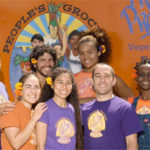
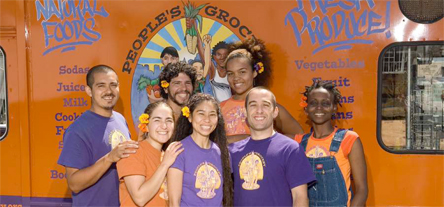 People's Grocery
2007 - $2,500 General Support
The People’s Grocery mission is to improve the health and economy of West Oakland through the local food system. Over the last nine years, People’s Grocery’s urban agriculture, nutrition, and enterprise programs have provided healthy food access while setting the stage for a systemic conversation about healthy food. Organizations across the country have replicated their work, and their leadership development models represent innovative strategies to catalyze resident power in the creation of health equity through food.
The People’s Grocery has gained regional and national recognition as a leader in the evolving food justice movement, providing workshops and trainings in best practices at forums including the California Department of Public Health, California Department of Forestry and Agriculture, the Environmental Grantmakers Association, the Kellogg Foundation’s Food & Society Conference and the Center for Healthy Communities at California Endowment.
website
People's Grocery
2007 - $2,500 General Support
The People’s Grocery mission is to improve the health and economy of West Oakland through the local food system. Over the last nine years, People’s Grocery’s urban agriculture, nutrition, and enterprise programs have provided healthy food access while setting the stage for a systemic conversation about healthy food. Organizations across the country have replicated their work, and their leadership development models represent innovative strategies to catalyze resident power in the creation of health equity through food.
The People’s Grocery has gained regional and national recognition as a leader in the evolving food justice movement, providing workshops and trainings in best practices at forums including the California Department of Public Health, California Department of Forestry and Agriculture, the Environmental Grantmakers Association, the Kellogg Foundation’s Food & Society Conference and the Center for Healthy Communities at California Endowment.
website
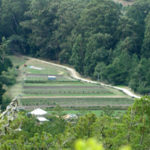

Pie Ranch
2019 - $15,000 General Support
2018 - $15,000 Climate Beneficial Farming at Año Nuevo
2016 - $10,000 General Support
2015 - $10,000 General Support
2010 - $10,000 Capital Campaign
2009 - $10,000 Capital Campaign
2008 - $10,000 Capital Campaign
2007 - $15,000 General Support
PIE RANCH'S MISSION IS TO CULTIVATE A HEALTHY AND JUST FOOD SYSTEM FROM SEED TO TABLE THROUGH FOOD EDUCATION, FARMER TRAINING, AND REGIONAL PARTNERSHIPS.
Pie Ranch works with Bay Area youth and the public via hands-on programming to foster awareness about where food originates, to gain insight into the issues farmworkers face and to understand the benefits of climate-smart farming. Apprentices train to prepare for their own careers in local agriculture by living on site and participating in every aspect of a working farm. Pie Ranch works with partners like the Amah Mutsun, the San Mateo Food Systems Alliance, Puente and others where interests intersect to advocate for a more equitable food system and a healthier planet.
In March of 2020, programming at the farm halted due to COVID-19. Seeking a way to be of use to the Greater Bay Area while regular programming was in abeyance, the Directors crafted a Farm Fresh Food Relief Program that utilized Pie Ranch’s program staff to aggregate, pack and distribute fresh produce to already marginalized communities suffering additional hardship from the virus’ economic impact. To date, this ongoing weekly program has served over 20,000 families with healthy, nutritious food.
August brought the CZU fire to Pie Ranch and to southern San Mateo county. Several Pie team members lost their homes while the farm’s historic house (the heart of Pie Ranch, home to its apprentices for over a decade and site of the Pie admin offices), its greenhouse, and countless trees fell to the blaze.
The extended Pie Family, including the Seed Fund rallied to support Pie Ranch’s ongoing efforts to recover from the twin catastrophes of the fire and assist with the organization’s effort to ameliorate the effects COVID-19. Seed Fund assistance ensures Pie’s program team has the resources to reach and teach youth and the public with online videos, creating socially-distanced curriculum at school gardens and implementing these same types of activities for small pods from partner schools and organizations at the farm.
The Emerging Farmers’ program lives on in a different iteration at neighboring Cascade Ranch , a climate - resilient regenerator farm that seeks to create wealth and equitable building opportunities for early stage farmers that have traditionally been excluded from land ownership. Land, mentorship, equipment access, and business planning are just some of the resources Pie Ranch funnels towards participants in this innovative program with the help of donors like the Seed Fund.
Pie’s Farmstand was able to stay open as an essential business providing this isolated community with farm fresh produce and in addition, a source of revenue for the farm during a time when other income streams have dried up.
Pie Ranch’s continued efforts in regional advocacy work took on a new significance this year with COVID exacerbating the fissures in the ailing food system and then climate change, drought and fires threatening the local Bay Area agri-system like never before. Pie’s advocacy efforts, partially supported by the Seed Fund, towards crafting a more sustainable Coastside is integral to the viability of our agriculture: Pie puts forth the vision of a more localized food infrastructure as described in the Local Food and Farm Bill, and this will help create a more just and planet-friendly food system.
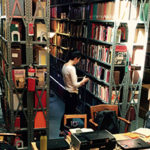
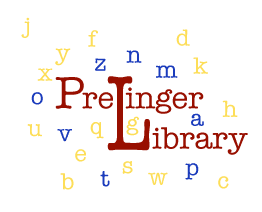
Prelinger Library
2018 - $5,000 General Support
2017 - $5,000 General Support
2016 - $5,000 General Support
The Prelinger Library is an urban oasis of research, community, art and collaboration in San Francisco. Co-founded by Rick and Megan Prelinger in 2004, it is a freely publicly accessible workshop where artists, writers and activists from around the Bay Area and across the Nation meet to pursue research-based works of all kinds. The Library offers a collection of over 30,000 books and an equal number of pieces of printed ephemera, including maps, zines and pamphlets. It is an appropriation friendly resource for all visitors.
Within its social function as a public workshop, the Library offers ongoing experiments in the future of reading, research and collaboration. No less important than what is in the collection is how it’s used: through social reading, through appropriation and through collaborations that arise from both careful planning and accidental meetings alike.

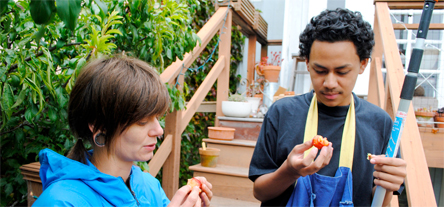 Produce to the People
2011 - $3,000 General Support
Produce to the People (PttP) is a grassroots, community food organization in San Francisco, founded in June 2009. PttP aims to localize the food system by utilizing and celebrating the unused resources in San Francisco, including fruit trees, vacant lots, and people power.
PttP’s work is rooted in outreach to under served communities, providing healthy, organic, local food for people who may not always have access to it, supporting garden projects in communities that may not have the funds to create or sustain them on their own, and providing educational jobs to youth with barriers to employment. They work to link these elements together; the growth, harvest, and dispersal of food, in conjunction with the collaboration of other organizations, neighbors, patrons of food programs, and young people, creates a full circle that links people coming from diverse life experiences and unites them over a common need for healthy food and community based care for one another.
producetothepeople.org
Produce to the People
2011 - $3,000 General Support
Produce to the People (PttP) is a grassroots, community food organization in San Francisco, founded in June 2009. PttP aims to localize the food system by utilizing and celebrating the unused resources in San Francisco, including fruit trees, vacant lots, and people power.
PttP’s work is rooted in outreach to under served communities, providing healthy, organic, local food for people who may not always have access to it, supporting garden projects in communities that may not have the funds to create or sustain them on their own, and providing educational jobs to youth with barriers to employment. They work to link these elements together; the growth, harvest, and dispersal of food, in conjunction with the collaboration of other organizations, neighbors, patrons of food programs, and young people, creates a full circle that links people coming from diverse life experiences and unites them over a common need for healthy food and community based care for one another.
producetothepeople.org
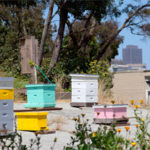
Rebar
2013 - $5,000 Adaptive Metropolis Symposium
2009 - $10,000 Hayes Valley Farm
REBAR's work encompasses visual and conceptual public art, landscape design, urban intervention, temporary performance installation, digital media and print design. Together with UC Berkeley Department of Landscape Architecture, The Adaptive Metropolis symposium convenes a global community of thinkers and doers to discuss the future of user-generated urbanism. The participation of leading scholars and critics allows authoritative and thorough analysis. The symposium also provides practitioners and theorists with a platform to discuss and share ideas, experiences, knowledge, and skills, creating an up-to-date battlefield map. Lastly, the symposium explores new ways to look at the subject matter, setting the stage for the next phase of its development. http://laep.ced.berkeley.edu/adaptivemetropolis/site/
Hayes Valley Farm (HVF) is a temporary urban permaculture demonstration site in San Francisco. It is a 2.2-acre non-profit community-run farm, urban agriculture education and research project located in the heart of the city of San Francisco. After the Loma Prieta earthquake in 1989, San Francisco's Central Freeway was compromised and in the years to come the ramps bordered by Laguna, Oak, Fell, and Octavia Streets were closed, and the lot locked up. In January 2010, the City activated the site for temporary green space use, allowing for Hayes Valley Farm to create the space for education and reflection.
Rebar was part of the original team that conceived of, planned, and fundraised to create Hayes Valley Farm. They worked closely with the Mayor’s Office of San Francisco, The Hayes Valley Neighborhood Association, the Public Utilities Commission, and the Department of Public Works to open the gates to the formerly vacant lot and bring in essential infrastructure. Rebar partnered with S12 Architects in the design and construction of the farm’s greenhouse, and worked closely with the HVF team to develop the farm’s current logo.
Rebar is a cross-disciplinary practice for solving the design problems of the commons.
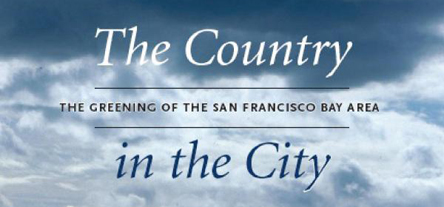 Richard A. Walker 2008 FellowRichard A. Walker is professor of geography and chair of the California Studies Center at the University of California, Berkeley. His research is focused on economic geography, regional development; capitalism and politics; cities and urbanism; resources and environment; California; class and race.
He recently published a book on the history of California’s agricultural system, The Conquest of Bread: 150 Years of Agribusiness in California, which tells the story of how capitalism developed the California countryside into the leading agrarian production complex in the United States. Professor Walker's most recent book concerns the creation of the San Francisco Bay Area greenbelt and the local environmental movement - The Country in the City: The Greening of the San Francisco Bay Area (University of Washington Press, 2007) narrates the many stories of land preservation, saving the bay, and fighting toxics that have made him a global bastion of environmentalism. His next book, tentatively titled City at Bay: The Making of the San Francisco-Oakland Metropolis, will recount the making of urban landscape of the Bay Area.
geography.berkeley.edu/richard-walker
Richard A. Walker 2008 FellowRichard A. Walker is professor of geography and chair of the California Studies Center at the University of California, Berkeley. His research is focused on economic geography, regional development; capitalism and politics; cities and urbanism; resources and environment; California; class and race.
He recently published a book on the history of California’s agricultural system, The Conquest of Bread: 150 Years of Agribusiness in California, which tells the story of how capitalism developed the California countryside into the leading agrarian production complex in the United States. Professor Walker's most recent book concerns the creation of the San Francisco Bay Area greenbelt and the local environmental movement - The Country in the City: The Greening of the San Francisco Bay Area (University of Washington Press, 2007) narrates the many stories of land preservation, saving the bay, and fighting toxics that have made him a global bastion of environmentalism. His next book, tentatively titled City at Bay: The Making of the San Francisco-Oakland Metropolis, will recount the making of urban landscape of the Bay Area.
geography.berkeley.edu/richard-walker
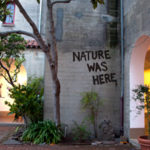

San Francisco Art Institute
2014 - $5,000 Urban Studies Fellow, to Be Announced in the Fall
2013 - $5,000 Urban Studies Fellow, Pablo Helguera
2012 - $5,000 Urban Studies Fellow, Radhika Subramaniam
2011 - $5,000 Urban Studies Fellow, Geoff Manaugh
Founded in 1871 the San Francisco Art Insitute (SFAI) is one of the nations oldest and most prestigious schools of higher education in contemporary art. Poised at the forefront of socially conscious art movements, SFAI’s Urban Studies program is designed specifically to address the contributions of art, artists, and researchers to the urban domain.The changing dynamics of cities—most notably the problem of rapid worldwide urbanization—have demanded new ways of thinking about geography, citizenship, and community. Through the two-year MA program, students strive to positively engage, critique, and transform contemporary urban life in multiple ways. The Urban Studies program integrates courses and resources from both the School of Studio Practice and the School of Interdisciplinary Studies, allowing students to chart an individualized path of study. Faculty contribute expertise in such diverse—yet inextricably linked—fields as curatorial studies, visual studies, art history, anthropology, sociology, geography, comparative literature, philosophy, media/technology studies, ethnic studies and American studies. In addition, the Seed Fund Teaching Fellowship in Urban Studies brings distinguished artists, designers, architects, and planners to campus for discussions of urban practices.
Established in 2011, the Seed Fund Teaching Fellowship in Urban Studies was created as a co-curricular research and development initiative in support of SFAI’s Urban Studies program. Emphasizing art and design practices as forms of urban problem-solving, the fellowship program includes public lectures and colloquia by distinguished artists, designers, architects, planners, and artist collectives, and is meant to facilitate sustained on-campus residencies that enable discussions of process, aesthetics, and exemplary urban practices.

San Francisco Bicycle Coalition Education Fund
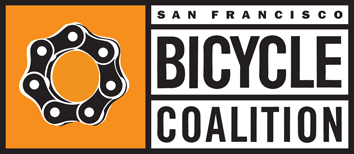
San Francisco Bicycle Coalition Education Fund
2019 - $10,000 General Support
2017 - $10,000 Transportation Equity Network
2013 - $5,000 "Kit of Parts" Manual
2012 - $25,000 2nd Street Project
2011 - $10,000 Family Biking Guide and Programs
2010 - $10,000 Connecting the City
2009 - $5,000 Great Streets Program
The San Francisco Bicycle Coalition is one of the oldest bicycle advocacy organizations in the country and was founded in 1971 by a group of activists representing a coalition of environmental and neighborhood groups. The organization quickly evolved into a powerful alliance of individuals working for a more bicycle-friendly city. The SF Bicycle Coalition has been dominated by a grassroots volunteer ethic ever since, growing into one of the strongest bicycle advocacy organizations in the country. For over 45 years, the San Francisco Bicycle Coalition has been transforming San Francisco streets and neighborhoods by promoting the bicycle for everyday transportation. Through their day-to-day advocacy, education and working partnerships with city and community agencies, the organization continues to create safe, just, and livable streets for all San Franciscans.
The San Francisco Bicycle Coalition embodies their core principles: transportation justice, sustainability, people power, and joy in all areas of their work. In their 2018-2022 strategic plan, the SF Francisco Bicycle Coalition incorporated these values to construct and execute a plan that prioritizes quality bicycle infrastructure and increases safety and invites more people to bike. In an effort to adapt to a world that’s changing the way it gets around, the San Francisco Bicycle Coalition aims to transform the streets of San Francisco through:
To fulfill these objectives, the SF Bicycle Coalition employs both their programmatic and advocacy related work to promote, educate, and reimagine transportation in San Francisco. Nationwide, transportation remains to be the second biggest expense in a household’s budget, and families in San Francisco feel that cost acutely. The San Francisco Bicycle Coalition strives to provide affordable transit options to those in need and promote the bicycle for everyday transportation.
Through the Bike It Forward program, the SF Bicycle Coalition works alongside community groups around the City to organize events structured to provide bikes to neighborhood residents. The organization reclaims unclaimed and abandoned bikes from the SFMTA, BART, and other agencies that are repaired with the help of volunteers. Alternatively, the Bike Match program connects people who have bikes they no longer use with those who need a bike. As a cooperative, community-driven collaborative, neighborhood residents who have expressed a need through partner organizations, complete a bicycle education course, get properly fitted for their new bike, and leave with a new, affordable, fun and healthy way to get around.
The San Francisco Bicycle Coalition is considered the leading resource for street safety and education in the city. The organization structures its curriculum to cater toward people who bike and those who share the streets with people who bike. Whether a course is dedicated to youth and family biking, navigating safely through San Francisco, learning how to share the streets with all forms of transit, riding at night and in all weather conditions, or just getting acquainted with the basics, the San Francisco Bicycle Coalition is proud to offer free online resources and classes that accommodate all age ranges, levels of comfortability, and experience.
Through their advocacy work, the SF Bicycle Coalition continues to push for more car-free spaces, slow streets, and safe, high-quality biking infrastructure. To keep expanding the number of Slow Streets, the San Francisco Bicycle Coalition continues to push the City to explore more permanent treatments and prioritize the densest San Francisco neighborhoods, including the Tenderloin and SoMa. In 2020, advocacy for better bike infrastructure pushed forward and construction continued on Lefty O’Doul Bridge, 7th Street from Folsom to Townsend, Howard Street from 3rd to Embarcadero, new protected bike lane segments on the Embarcadero, and improvements to 20th Avenue in the Outer Sunset.
During the pandemic, the organization has seen six times more people biking in Golden Gate Park. Now, after decades of advocacy, San Franciscans can enjoy a fully car-free route from the Panhandle to Ocean Beach; take a car-free ride through the Panhandle, to the eastern segment of JFK Drive, through Overlook and Middle Drive, and onto the car-free western segment of MLK Drive. While more people are looking to spend more time outdoors amidst the lifting of shelter-in-place orders, the Slow Streets program has also expanded car-free space across San Francisco to help people stay healthy and safe. Thanks to this program, people can maintain social distance as they walk, bike, and roll on over 30 corridors that are closed to vehicle through traffic.
The Seed Fund have been supporters of the San Francisco Bicycle Coalition for over a decade and have partnered with the organization to fund certain campaigns centered around transportation justice, sustainability, people power, and joy. Some of these projects include:

San Francisco Children in Nature Forum
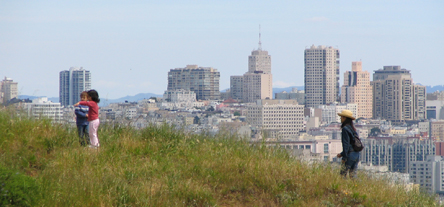 San Francisco Children in Nature Forum
2012 - $5,500 General Support
The San Francisco Children in Nature (SFCiN) Forum brings together educators, program directors, recreation and parks staff, health care and urban planning professionals towards the end of ensuring that all San Franciscan childhoods flourish with access to quality outdoor experience. The mission is to inspire city agencies, schools and communities to nurture, empower, and engage children, youth and families in their relationships with urban nature in San Francisco.
Participating programs and agencies include: the YMCA of San Francisco, San Francisco Unified School District, San Francisco Recreation and Parks, the Presidio Trust, the Golden Gate National Parks Conservancy, National Park Service, Literacy for Environmental Justice, Kids in Parks, the Randall Museum, preschools and child development centers.
San Francisco Children in Nature Forum
2012 - $5,500 General Support
The San Francisco Children in Nature (SFCiN) Forum brings together educators, program directors, recreation and parks staff, health care and urban planning professionals towards the end of ensuring that all San Franciscan childhoods flourish with access to quality outdoor experience. The mission is to inspire city agencies, schools and communities to nurture, empower, and engage children, youth and families in their relationships with urban nature in San Francisco.
Participating programs and agencies include: the YMCA of San Francisco, San Francisco Unified School District, San Francisco Recreation and Parks, the Presidio Trust, the Golden Gate National Parks Conservancy, National Park Service, Literacy for Environmental Justice, Kids in Parks, the Randall Museum, preschools and child development centers.
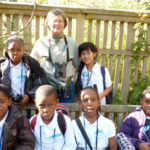
San Francisco Nature Education
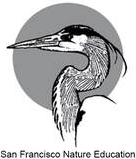
San Francisco Nature Education
2011 - $5,000 General Support
San Francisco Nature Education (SFNE) is now in its eleventh year of providing meaningful environmental education to students from under served schools. SFNE’s school program is focused on k-3rd grade students throughout schools in San Francisco and introduces students at a very young age to basic concepts: respect for nature, conservation and stewardship.
SFNE’s trained volunteer naturalists visit classrooms and conduct field trips to local parks and also provided much needed mentoring to students in small groups. SFNE prides itself on maintaining a ratio of one to six students in the classroom and field. SFNE received the Jefferson Award for Public Service in 2005 and its’ director was nominated for the 2011 Terwilliger Environmental Award.
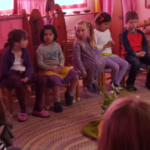
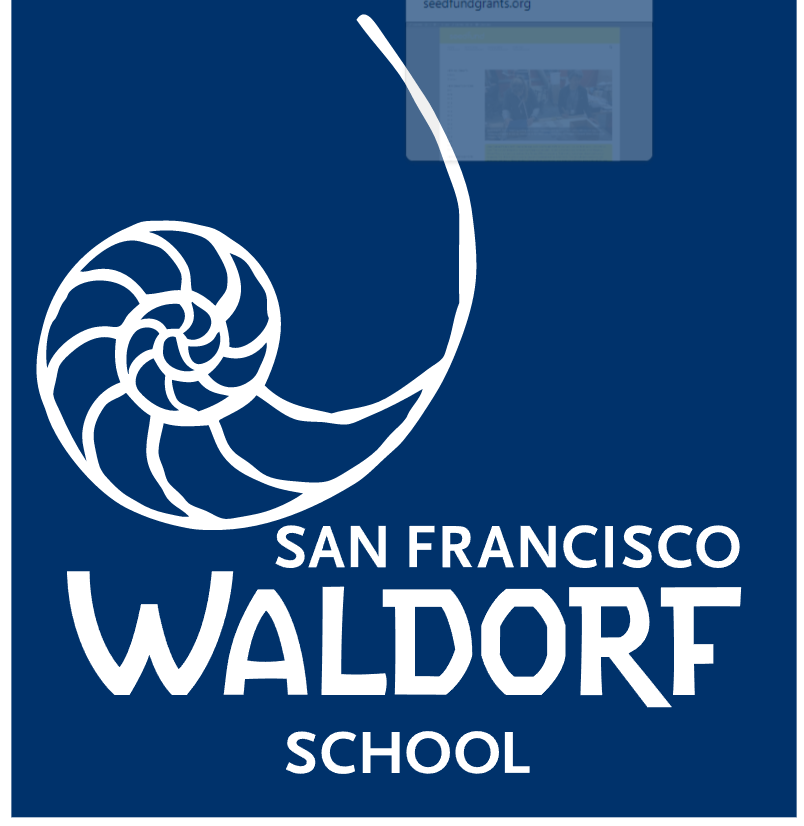
San Francisco Waldorf School
2018 - $34,000 Outdoor Classroom
2016 - $33,000 Outdoor Classroom
2015 - $5,000 Outdoor Classroom
2014 - $7,500 Outdoor Classroom
2013 - $10,000 Outdoor Classroom
2009 - $10,000 Biodynamic Garden Program
2008 - $6,000 Biodynamic Garden Program
2007 - $10,000 High School Capital Campaign
San Francisco Waldorf School is an independent, co-educational, non-sectarian school providing education from Kindergarten through Grade 12. SFWS was founded in 1979 as an independent school within the rich Waldorf tradition whose mission is to educate students using an approach that fosters independent thought and a sense of personal responsibility. The Waldorf curriculum, designed by Austrian philosopher and scientist Rudolf Steiner in 1919, is based on a thorough study of child development, so that the subjects taught meet not only the cognitive developmental needs of the students, but also their physical, emotional, and spiritual needs. There are over a thousand Waldorf schools around the world, each operating independently, but held together by a common understanding of human development and a recognition of the value of artistic work and meaningful social interaction.High School capital campaign
San Francisco Waldorf High School’s campus opened in September 2007. As the first school in San Francisco to be awarded the coveted LEED Gold certification, the overall goal of the project was to create an environment that is in harmony with the philosophy of Waldorf Education. Perhaps the greatest reflection of this success is the fact that the building itself will be incorporated into the curriculum as an educational resource for environmental studies. The principals of the Waldorf philosophy and the actual building serve as a teaching tool for students, demonstrating how to become actively involved in today’s social issues.Biodynamic Garden
The Waldorf School Biodynamic Garden was created to grow children's love for the earth, for meaningful labor, and for themselves and their community through infinitely fascinating work as farmers. Located at the Little Sisters of the Poor’s St. Anne’s home, the garden acts as a teaching tool, a healthy food source for the lunchroom and a social hub for the children as well as the residents of St. Anne’s. The participating students, kindergarten through third grade, are toured through the garden to taste what is in season and observe the garden’s changes before splitting up to participate in the upkeep of the garden. With tasks like planting apple trees, building compost and harvesting crops, every child is engaged with the garden directly, discovering the benefits of farming for themselves.Nature Program\The Waldorf School Nature Program creates an overarching program that serves as a model for other urban schools who aspire to “bring nature alive” for students, faculty and the entire community. The program brings younger children out into nature and older students the opportunity to learn more about regional biodiversity. This program will offer an ongoing educational series to facilitate community understanding and support. This series brings a wide variety of speakers to address topics that enhance understanding of environmental education, brought via lectures, workshops and events. The program's goal is to create awareness of issues and initiatives that are relevant in the San Francisco Bay Area.
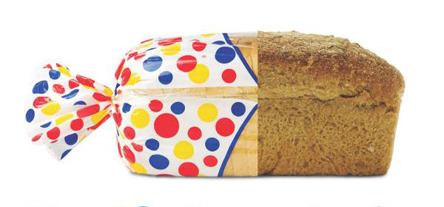 Sandor Katz
2011 Fellow
Sandor Katz is the author of The Revolution Will Not be Microwaved: Inside America's Underground Food Movements (Chelsea Green Publishing, 2006) This book is about food activism and people trying to make better choices – people wanting to create better food alternatives for themselves and the people in the communities around them.Katz urges people to challenge their roles as unquestioning consumers of the American food industry. His message is to use everyday ingredients to be a producer and not just consumer of food – and not just ordinary food – but some of the most vibrantly flavorful and health giving foods imaginable. His critique of mega production and celebration of the alternatives empowers people to feel like they can make and cultivate their own food – whatever their circumstances. His long held belief in community gardens, community supported agriculture and community kitchens has inspired many and been an integral part in the underground food movement.
Katz is also the author of The Art of Fermentation: An In-depth Exploration of Essential Concepts and Processes from Around the World (Chelsea Green Publishing, 2012) and Wild Fermentation: The Flavor, Nutrition, and Craft of Live-Culture Foods (Chelsea Green Publishing, 2003). He travels widely teaching people simple fermentation techniques and demystify home fermentation. He has taught hundreds of hands-on fermentation workshops around the US and Australia.
wildfermentation.com
Sandor Katz
2011 Fellow
Sandor Katz is the author of The Revolution Will Not be Microwaved: Inside America's Underground Food Movements (Chelsea Green Publishing, 2006) This book is about food activism and people trying to make better choices – people wanting to create better food alternatives for themselves and the people in the communities around them.Katz urges people to challenge their roles as unquestioning consumers of the American food industry. His message is to use everyday ingredients to be a producer and not just consumer of food – and not just ordinary food – but some of the most vibrantly flavorful and health giving foods imaginable. His critique of mega production and celebration of the alternatives empowers people to feel like they can make and cultivate their own food – whatever their circumstances. His long held belief in community gardens, community supported agriculture and community kitchens has inspired many and been an integral part in the underground food movement.
Katz is also the author of The Art of Fermentation: An In-depth Exploration of Essential Concepts and Processes from Around the World (Chelsea Green Publishing, 2012) and Wild Fermentation: The Flavor, Nutrition, and Craft of Live-Culture Foods (Chelsea Green Publishing, 2003). He travels widely teaching people simple fermentation techniques and demystify home fermentation. He has taught hundreds of hands-on fermentation workshops around the US and Australia.
wildfermentation.com
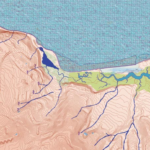
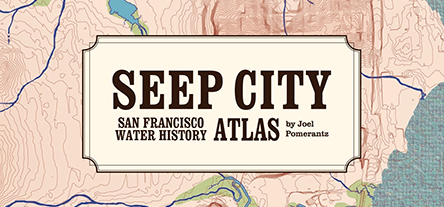
Seep City
2016 - $5,000 General Support
The Seep City Water Log, named for the groundwater in our soil, is an effort by Joel Pomerantz to connect local explorers of all ages and qualifications with the waterscapes of San Francisco, past and present. Focus is on how creek and climate history are part of the living landscape. The mapping project has tracked nearly two dozen major springs that still exist today, even in drought times. The project now exists as an education art piece and a published map that has inspired thousands to explore and research. This map was produced as a companion to the forthcoming book, Seep City Water Log.
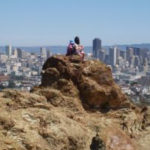
SF Nature Mapping Project
2014 - $5,000 General Support
The Children in Nature Map will be the first interactive map of the SF Nature Mapping Project and the first map tailored to families who want to find places to play in San Francisco’s nature. The map is being created in partnership with the San Francisco Children in Nature Forum and GreenInfo Network.
The SF Nature Mapping Project seeks to connect people to nearby urban nature through online interactive maps. As people move into cities many assume that this means less time that they can spend in nature, but this project challenges that myth by showing clearly where we can access nature in San Francisco.
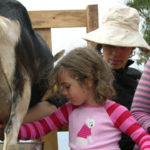
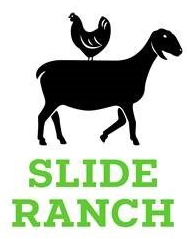
Slide Ranch
2011 - $10,000 Slide Outside Project
2007 - $10,000 General Support
Slide Ranch has provided experiential education with environmental and sustainable agriculture curricula since 1970. Slide Ranch staff operate the farm using a turn of the century farmhouse, old creamery and several outbuildings situated along a scenic coastal bluff. Annually over 8,000 Bay Area residents, many of them children, participate in three primary Slide Ranch programs: Family Programs, Group Programs and Summer Day Camp. Slide Ranch Programs bring learning to life with hands-on education activities on a working farm. More than 170,000 visitors have participated in programs and events at this spectacular coastal site perched above the Pacific Ocean in western Marin County. Slide Ranch inspires visitors to discover the connections between the food we eat and the soil that nourishes the plants and animals. The outdoor classroom ignites ongoing learning and provides a place to reflect on the impact that individual and collective choices have on the environment, food and health.
The Slide Outside Project provides a package of on and off-site services to a targeted set of partners that help low-income students, families and educators access a broader spectrum of services and integrate lessons learned at Slide Ranch into their everyday lives. The program includes a combination of outreach and collaboration, day and overnight programs based at Slide Ranch, Slide Ranch staff visits to program sites, family engagement strategies, and teacher training.
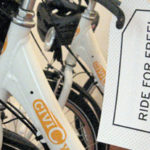

Southern Exposure
2015 - $10,000 General Support
2008 - $10,000 Vapor Exhibition
Located in San Francisco’s Mission District, Southern Exposure (SOEX) has been presenting a diverse, innovative, contemporary art, arts education, and related programs and events for over 34 years. SOEX reaches out to diverse audiences and serves as a forum and resource center to provide extraordinary support to the Bay Area's arts and educational communities. Activities range from exhibitions of local, regional, and international visual artists’ work, education programs, and lectures, panel discussions, and performances. Southern Exposure is dedicated to giving artists—whether they are exhibiting, curating, teaching, or learning—an opportunity to realize ideas for projects that may not otherwise find support.
The exhibition, Vapor, surveyed art, architecture and design that takes our declining air quality as the subject matter, medium and metaphor for creative work. Often inspired by forms of activism, the works reacted to the sources of climate change through the use of technologies – sensors, databases, and communications equipment – that were only recently accessible outside a lab. In this sense, the show's title also referred to the growing means by which this art is being produced, in addition to the ubiquity of greenhouse gases and other air conditions that serve as this art’s medium. Vapor proposed new ways of modeling, testing and finding solutions to the problems of air quality and greenhouse gas emissions.
Spring Street Climate Fund
2023 - $15,000 Zero emission school buses
Addressing climate change is a central challenge of this moment; the actions taken today will help determine the safety and prosperity of billions of people living today and set a framework for generations to come.
New Yorkers are uniquely positioned to have an outsized impact on climate outcomes around the globe. New York is the world’s 11th largest economy; what happens in New York can build markets, reshape industries and incentivize billions of dollars of investment. As a prominent large state, New York’s actions set a precedent that can scale to other states and the country as a whole.
That’s where Spring Street Climate Fund comes in. Spring Street identifies opportunities to win climate policy in New York that can make a difference globally, and partners with grassroots organizations throughout the state to turn ambitious ideas into public policy. Spring Street acts as a force multiplier in the climate movement, helping supercharge the grassroots organizing that can turn New York into a powerful force for progress.
Since its founding in 2021, Spring Street has helped win progress on bold new policies, including:
As part of its mission to identify opportunities for New York to make an outsized difference on climate policy, Spring Street is also working to make New York the first state in the nation to fully transition away from diesel school buses and to clean, zero-emissions school buses statewide.
Diesel school buses are not only a climate change issue - emitting high levels of greenhouse gasses like carbon dioxide - but also a public health and environmental justice issue: the air in a school bus is up to 12 times as toxic as the ambient air outside the bus. This hurts the children breathing the dirty air on their buses, and hurts environmental justice communities where school bus depots are disproportionately located. The challenge is vast, and the opportunity for New York to use its unique leverage to address the problem is immediate and real.
New York has nearly 50,000 school buses in operation across the state, approximately one out of every ten buses nationwide. By transitioning its entire school bus fleet to zero-emissions vehicles, New York can help to bend the cost curve and make electric school buses cheaper for everyone - changing the economics of zero-emissions buses not only for its own school districts but for states across the country.
In 2022, Spring Street supported the successful grassroots campaign to make New York the first state in the country to require the transition of its entire fleet to zero-emissions buses. In its 2022 state budget, New York became the first state in the country to mandate the transition of its entire fleet to zero-emissions buses. Spring Street then supported a public education campaign to secure $500 million in funding to help school districts around the state make the transition to zero-emissions school buses through the Environmental Bond Act.
But the campaign is not yet complete. Winning a law in Albany is not the same as making the change a reality on the ground. Today, Spring Street Climate Fund is partnering with grassroots organizations in New York State to ensure that policymakers and elected leaders remain accountable to the promises they have made to implement a full transition to a zero-emissions bus fleet.
If the effort is successful, full implementation of New York’s school bus law will reduce direct emissions while also building the nation’s first statewide market for zero-emissions buses, reducing the cost of clean school buses not just in New York but for consumers nationwide.
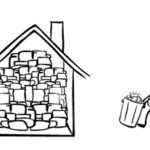
Story of Stuff Project/Annie Leonard
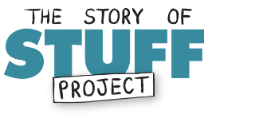
Story of Stuff Project/Annie Leonard
2011 - $3,000 General Support
The Story of Stuff is a twenty minute animation on the way we make, use and throw away consumer goods. With over 15 million views and counting, The Story of Stuff, is one of the most watched environmental-themed online movies of all time.
The Story of Stuff Project was created by Annie Leonard to leverage and extend the film’s impact. It works to amplify public discourse on a series of environmental, social and economic concerns and facilitate the growing Story of Stuff community’s involvement in strategic efforts to build a more sustainable and just world. Their on-line community includes over 150,000 activists and they partner with hundreds of environmental and social justice organizations worldwide to create and distribute their films, curricula and other content. Their latest movie, The Story of Change, has just been released.
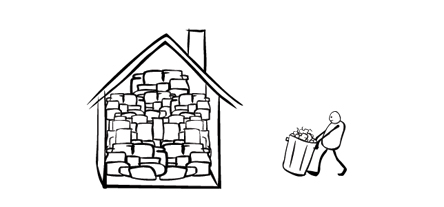
2011 - $3,000 General Support
The Story of Stuff is a twenty minute animation on the way we make, use and throw away consumer goods. With over 15 million views and counting, The Story of Stuff, is one of the most watched environmental-themed online movies of all time.
The Story of Stuff Project was created by Annie Leonard to leverage and extend the film’s impact. It works to amplify public discourse on a series of environmental, social and economic concerns and facilitate the growing Story of Stuff community’s involvement in strategic efforts to build a more sustainable and just world. Their on-line community includes over 150,000 activists and they partner with hundreds of environmental and social justice organizations worldwide to create and distribute their films, curricula and other content. Their latest movie, The Story of Change, has just been released.
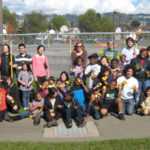
Suzanne Cockrell, California College of the Arts Engage Class
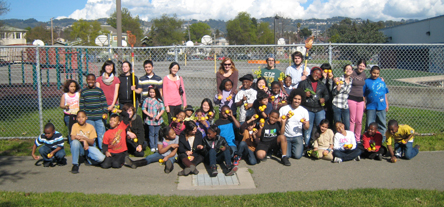 Suzanne Cockrell, Engage Class at California College of the Arts
2011 - $1,125 Garden at Emerson Elemenary School, Oakland
This grant was used to fund the design and building of a small orchard and pollinator garden at Emerson K-5 Public Elementary School located in Oakland’s Temescal District. The orchard and garden are a community project which was part of an undergraduate Community Arts/Diversity Studies course at California College of the Arts (CCA). The CCA students led by artist, Suzanne Cockrell, mentored thirty five 4th graders to plan and implement a garden for the school community. Students germinated seeds for the pollinator garden, learned the botanical parts of a fruit tree and how fruit grows, foraged and tasted fruit from neighborhood trees, and helped sheet mulch and plant the orchard in their schoolyard. The project developed a culture of stewardship for the orchard and through special assemblies, curriculum and harvest celebrations. The students and school families will nurture and care for their orchard over time.
Suzanne Cockrell, Engage Class at California College of the Arts
2011 - $1,125 Garden at Emerson Elemenary School, Oakland
This grant was used to fund the design and building of a small orchard and pollinator garden at Emerson K-5 Public Elementary School located in Oakland’s Temescal District. The orchard and garden are a community project which was part of an undergraduate Community Arts/Diversity Studies course at California College of the Arts (CCA). The CCA students led by artist, Suzanne Cockrell, mentored thirty five 4th graders to plan and implement a garden for the school community. Students germinated seeds for the pollinator garden, learned the botanical parts of a fruit tree and how fruit grows, foraged and tasted fruit from neighborhood trees, and helped sheet mulch and plant the orchard in their schoolyard. The project developed a culture of stewardship for the orchard and through special assemblies, curriculum and harvest celebrations. The students and school families will nurture and care for their orchard over time.

The Center for Land Use Interpretation

The Center for Land Use Interpretation
2008 - $5,000 Petroscape Program
The Center for Land Use Interpretation (CLUI) is a research and education organization interested in understanding the nature and extent of human interaction with the earth’s surface, and in finding new meanings in the intentional and incidental forms that we individually and collectively create. They believe that the man made landscape is a cultural inscription that can be read to better understand who we are, and what we are doing.
The organization was founded in 1994, and since that time it has produced dozens of exhibits on land use themes and regions, for public institutions all over the United States, as well as overseas. CLUI publishes books, conducts public tours, and offers information and research resources through its library, archive, and website.
Petroscape
Petrochemical products coat the surfaces that surround us, stuff the products we buy, build our food, move ourselves and our goods, and run the American machine. We all know that, yet we know so little about it. Improving the understanding of the physical form of this landscape, and its relationship to us, is the subject of this ongoing program.
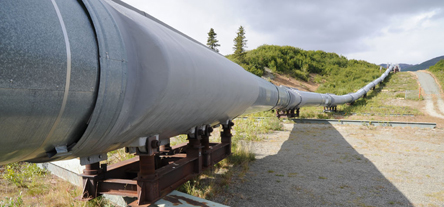
2008 - $5,000 Petroscape Program
The Center for Land Use Interpretation (CLUI) is a research and education organization interested in understanding the nature and extent of human interaction with the earth’s surface, and in finding new meanings in the intentional and incidental forms that we individually and collectively create. They believe that the man made landscape is a cultural inscription that can be read to better understand who we are, and what we are doing.
The organization was founded in 1994, and since that time it has produced dozens of exhibits on land use themes and regions, for public institutions all over the United States, as well as overseas. CLUI publishes books, conducts public tours, and offers information and research resources through its library, archive, and website.
Petroscape
Petrochemical products coat the surfaces that surround us, stuff the products we buy, build our food, move ourselves and our goods, and run the American machine. We all know that, yet we know so little about it. Improving the understanding of the physical form of this landscape, and its relationship to us, is the subject of this ongoing program.
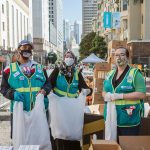
The Tenderloin Community Benefit District (TLCBD)
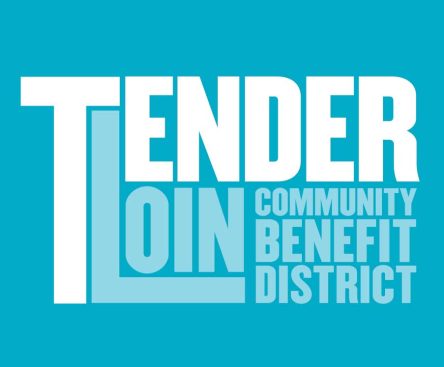
The Tenderloin Community Benefit District (TLCBD)
2021 - $15,000 Climate Justice Project
2020 - $10,000 Safe Passage Program
Leveraging existing programs and funding, the TLCBD is partnering with the SeedFund to invest in the future environmental health and equity of Tenderloin. With the support of the SeedFund the TLCBD is committed to incorporating climate education, organizing and policy advocacy - within our Resident Voice and Inviting Spaces programs - to elevate the climate change mitigation and environmental resource management priorities of the Tenderloin residents. Issues such as waste reduction and water conservation, walkability and reductions in automobile traffic, improvements in the built environment and energy conservation will be explored through community forums and amplified through community-led actions and policy input with city officials. Through our Park Resident Advisory Council and Block Groups, we will incentivize a community-led initiative for policy education and engagement. Climate impacts will be disproportionately felt by the most under-resourced. San Francisco boasts 6,925 acres of green space. Only 9.4 of those acres are in the Tenderloin. In a neighborhood where urban blight, open-air drug trafficking, and houselessness abound, the TLCBD - together with other anchor institutions and partners - is leading an initiative called TL Transforms. TL Transforms is the physical improvement strategy for the Tenderloin community; through "greening", planting and maintaining natural spaces, trees, and beautifying common spaces through art and cultural activation. With SeedFund's support we will expand and accelerate that change.
The Tenderloin Community Benefit District (TLCBD) is a leadership minded non profit working to ensure San Francisco’s Tenderloin is a vibrant community for ALL. With strong community partnerships and collaboration with city agencies, the TLCBD is focused on creating sustainable, positive change through a variety of projects and programs in fostering neighborhood pride, economic opportunity as well as clean and safe inviting public spaces. Find out more at www.tlcbd.org, and follow them on all social platforms at @TLCBD. For more information about our recent work, check out the TLCBD 2020 Year in Reflection.
About TLCBD Safe Passage
The roots of TLCBD Safe Passage program are planted firmly in the advocacy of neighborhood mothers and community leaders who identified a need for safer streets for their children navigating between home, school, and other youth serving programs.
The Tenderloin is home to an estimated 3,500 children.
In 2016, the Tenderloin Safe Passage merged into its sister organization. Through TLCBD, Safe Passage grew from an all-volunteer effort to a robust team of full-time and part-time staff positions, as well as other stipended volunteers, known as Corner Captains. At its core, TLCBD Safe Passage works to build a culture of safety, helping people feel safe and be safe through education, visibility, and engagement.
In addition to supporting the safety of neighborhood youth, the program has expanded to support the many seniors who call the Tenderloin home. In addition, the program plays a pivotal role in providing safe access to Turk-Hyde Mini Park, Sgt John Macaulay Park, and Boeddeker Park. Through TLCBD Pedestrian Safety program, Safe Passage has been able to advocate for transformative changes to support pedestrian safety and other neighborhood-serving efforts Block Safety Groups, a placed-based model for connection and agency for residents.
Investment in this program is not just about creating a culture of safety in the Tenderloin, but about changing lives. TLCBD Safe Passage has a daily impact on children, seniors, and other community members while empowering Corner Captains with a sense of agency, pride, and economic opportunity.
During the pandemic, TLCBD Safe Passage pivoted to respond to the needs of our community.
Among the biggest community-identified needs during the pandemic were inadequate food security and a sense of isolation for residents. In collaboration with partners from neighbor organizations suchas TNDC, La Voz Latina, Salvation Army Kroc Center, the SF-Marin Food Bank, area schools, and the Department of Children Youth and Families (DCYF), Safe Passage Corner Captains began supporting the Tenderloin’s food distribution efforts.
To foster connection, continuity, and well being, TLCBD Safe Passage developed weekly virtual trainings open to community members and Corner Captains, as well as a support network of regular phone calls to program participants. TLCBD Safe Passage ultimately returned to provide on-the-ground support for neighborhood parks and newly open pedestrian spaces and street activations through block closures.
TLCBD Safe Passage continues to be an inspiration to the organization, its program participants, and all who live, work, or visit the Tenderloin. It has also provided technical assistance to other agencies and organizations interested in modeling the program for its best practices.
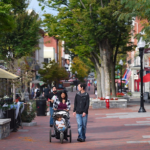

Transportation for America
2023 - $15,000 Reduce VMT/zero emissions vehicles report
Smart Growth America (SGA) envisions a country where no matter where you live, or who you are, you can enjoy living in a place that is healthy, prosperous, and resilient. SGA works across the nation with elected officials at all levels, real estate developers, chambers of commerce, transportation and urban planning professionals, and community members to improve everyday life for people across the country through better development. SGA’s team includes experts in land use, real estate development, transportation, and economic development.
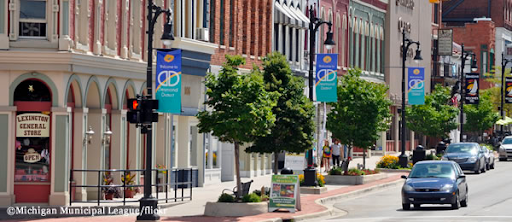
SGA currently focuses on three specific priorities: Climate change and resilience, advancing racial equity, and creating healthy communities. Solving huge challenges like climate change, affordable housing, the need for vibrant local economies, or how to affordably connect people to jobs and services requires an interdisciplinary approach across a span of interrelated areas: housing, zoning, planning, land use, economic development, transportation, and others.
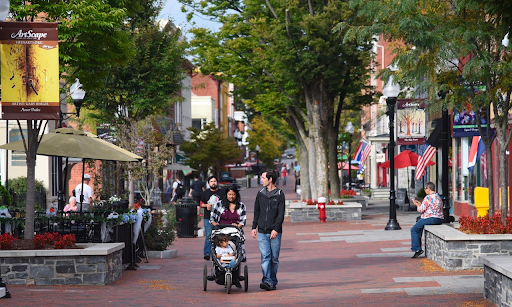
At the core of SGA’s overall approach is empowering communities through direct technical assistance, powerful advocacy, and thought leadership to realize our vision of livable places, healthy people, and shared prosperity.
We are known for path breaking reports like:
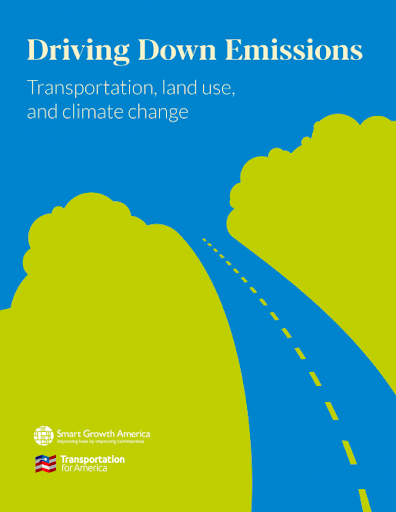
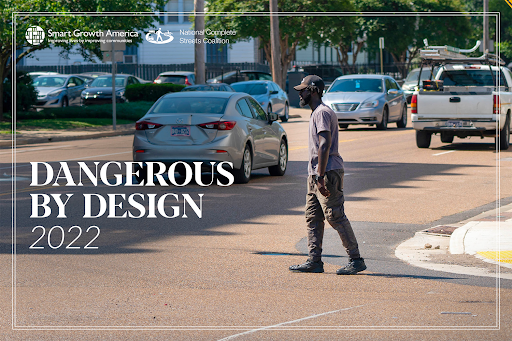
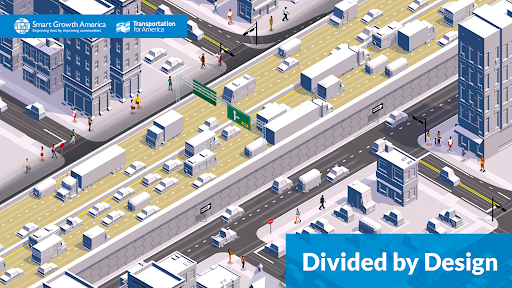
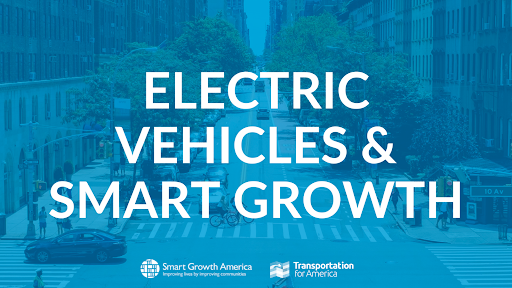
The organization also comprises a number of sub-brands, including Transportation for America, which focuses on creating a transportation system that connects people to jobs and essential services no matter how they travel, how much money they earn or their physical abilities. Our transportation priorities are to:
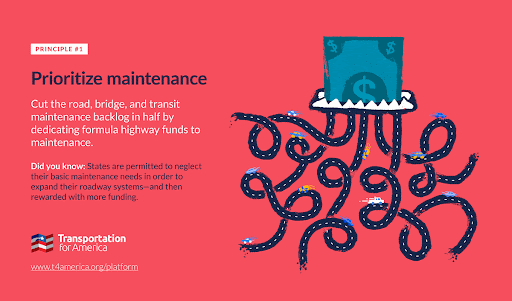
Transportation for America currently partners with the Clean Vehicles Coalition to manage the Coalition for Helping America for Rebuild and Go Electric (CHARGE) to decarbonize the transportation sector through both electrification and improving the efficiency of the transportation system to require less driving.
Transportation for America is currently examining the question: What balance of fleet conversion and reducing driving is needed to keep emissions low enough to stave off catastrophic global climate change? To answer this question, we will:
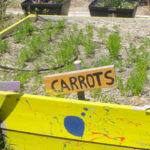
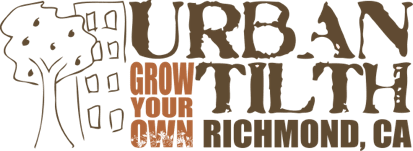
Urban Tilth
2009 - $5,000 General Support
Urban Tilth cultivates agriculture in West Contra Costa County to help the community build a more sustainable, healthy and just food system. Working with schools, community-based organizations, government agencies, businesses, and individuals, Urban Tilth aims to develop the capacity to produce 5% of Contra Costa County’s own food supply.
Operating on the belief that environmental restoration is inextricably connected to economic and social restoration, they are committed to training and employing local people, working collaboratively within community, establishing cross sector coalitions, engaging in local policy decisions and growing food locally and organically using the principles of permaculture to take into consideration waste reduction as well as water and soil conservation, preservation and restoration.


Veggielution
2010 - $3,000 Support for Cold Storage Construction
Veggielution is a two acre non-profit community farm dedicated to creating a more sustainable food system in San Jose, California. Veggielution works to empower people to change the way they think about food by getting their hands in the soil, connecting with the land, and tasting the fruits of their labor. In low-income communities, it isn’t just about the personal choice to eat healthier – as that choice often isn’t available. By fostering positive social interactions between all those who participate in their community farm, participants feel as though they are a part of a larger farm community, which is centered on the land that they work, the food that they share, and the understanding that they are all dependent on each other and the natural environment that sustains us.
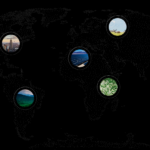

What is Missing?
2016 - $10,000 What Is Missing? Project
2015 - $10,000 What Is Missing? Project
2014 - $10,000 What Is Missing? Project
Maya Lin is an artist and environmentalist. She established the What Is Missing? project to create, through science-based artworks, an awareness about the present mass extinction of species due to habitat degradation and loss, and to emphasize that by protecting and restoring habitats, carbon emissions can be reduced and species & habitats protected. Designed as Maya Lin’s last memorial, the What Is Missing? project takes place in multiple sites and forms dedicated to creating a connection between people and the species and places that have disappeared or are predicted to become extinct.
This project is a call to action and helps participants and viewers reimagine the human relationship to nature. It creates hope by showing individuals what they can do to make a difference through their own consumer choices. The What Is Missing? project is made up of sound and media sculptures, traveling exhibitions, video installations, a physical and digital book and a website. Part of the website is devoted to introducing Greenprint for the Future, which when completed will help visitors examine their land use and resource consumption patterns and will demonstrate how changing these practices can effectively help the planet.


Youth Art Exchange
2013 - $5,000 Mobile Parklet
Founded in 2000, Youth Art Exchange provides relevant arts education that connects underserved high school-aged youth to the broader community. Based at the intersection of the Oceanview-Merced-Ingleside neighborhood and Excelsior, Youth Art Exchange fills the gap of services for youth in this low-income, multi-lingual neighborhood.
Mobile Parklet
A youth-designed and built parklet in San Francisco’s Oceanview-Merced-Ingleside neighborhood offers a green gathering space in front of the centrally located Fog Lifter Café on Ocean Avenue, improving public life by keeping this commercial corridor accessible and exciting for urban dwellers and visitors.